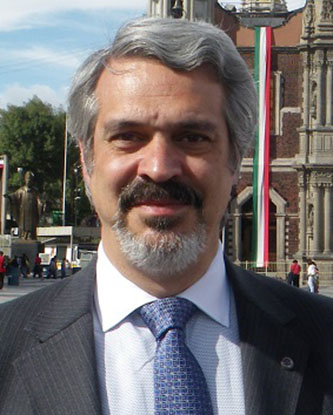
Juan Navarro Floria graduated in law with honors from Pontificia Universidad Catolica of Argentina, where he is now Professor of Law, teaching civil law, ecclesiastical law, and law and religion in Latin America. He is also a lawyer and litigator in these fields. He was Chief Advisor to the Secretariat of Religious Affairs of the Argentine Government, founder, board member, and past president of the Argentine Council of Religious Freedom (CALIR), and also founder and past-president of the Latin American Consortium for Religious Freedom. He is a member of the Academic Advisory Board of the International Center for Law and Religion Studies (ICLRS–BYU), of the National Committee 'Justicia y Paz' at the National Conference of Catholic Bishops in Argentina, and founder and member of the Steering Committee of the International Consortium for Law and Religion Studies (ICLARS–Milan). Publications include El derecho a la objección de conciencia (2004), La libertad religiosa en España y Argentina (co-editor, 2006), Estado, Derecho y Religión en América Latina (editor, 2009; Italian 2010), and Acuerdos y concordatos entre la Santa Sede y los países americanos (editor, 2011).
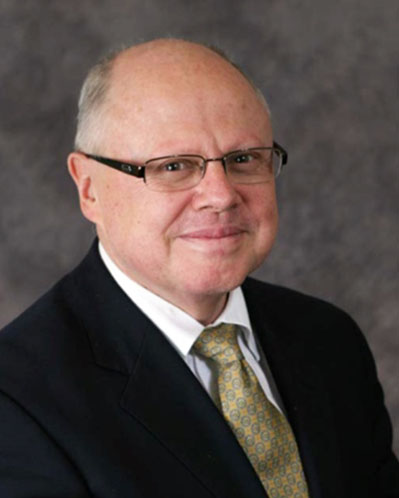
Neville Rochow SC is a Professor at the University of Notre Dame Law School, Sydney, Australia, and a barrister who has acted in numerous complex commercial cases and many cases related to freedom of religion or belief (FoRB). He has had submissions before several Parliamentary inquiries, committees, and the Human Rights Commission on constitutional protection of FoRB, and is published in the area of FoRB. As co-ordinator and secretary of and legal advisor to the Australian Economics of Religion Study Group, he devised an econometric study to measure the value of religious performance in Australia. He is an International Fellow for the International Center for Law and Religion Studies, J. Reuben Clark Law School, Brigham Young University, a member of the Wilberforce Foundation, and a member of the Research Unit for the Study of Society, Law and Religion (RUSSLR), University of Adelaide Law School. He is at present Government Relations Representative at the European Union Office of The Church of Jesus Christ of Latter-day Saints in Brussels, acting as an advisor and advocate to the EU and the UK in matters relating to FoRB.
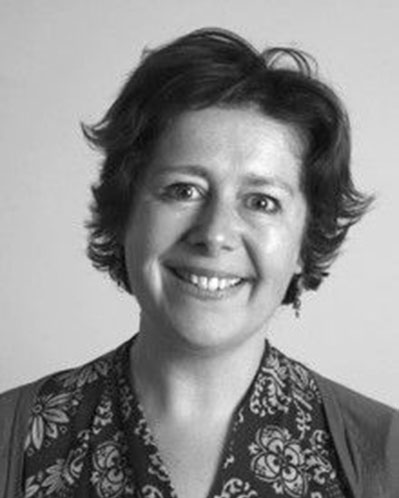
Prof. Dr. Eva Brems (LLM Harvard 1995, PhD Catholic University of Leuven 1999) is a Professor of Human Rights Law at Ghent University (Belgium), where she founded the Human Rights Centre (http://www.hrc.ugent.be/). Her research interests include most areas of human rights law, in European and international law as well as in Belgian and comparative law. In the field of religious freedom, Eva has done extensive research amongst others on headscarf and face covering bans. With the Human Rights Centre, she has submitted third party interventions in several European Court of Human Rights cases, including SAS v. France, Lachiri v. Belgium, and Dakir v. Belgium.
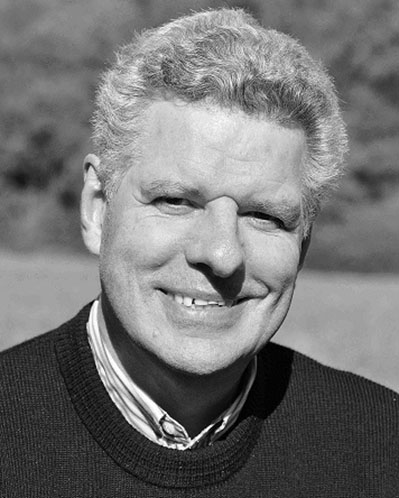
Louis-Léon Christians, PhD, is professor and head of the Chair for Law and Religion at the Université Catholique de Louvain (UCL), where he is also President of the Research Institute for Religious Studies (RSCS) and Director of the Master in Religious Studies. In Belgium he was Head of a Federal Commission for Law and Religions Reform (2008-2011) and a member of the Belgian Federal Observatory on Cults (CIAOSN) (1999-2012). Since 1999 he has also been an expert in religious affairs for the Council of Europe, United Nations UNHCHR, and the European Union. His research interests, publications, and teaching cover the fields of Religious Freedom, Churches and States Relationships in Europe, and International Law and comparative religious laws. In 2014 he was elected by the Parliament as one member of the Board of the Anti-discrimination Belgian Federal Commission.
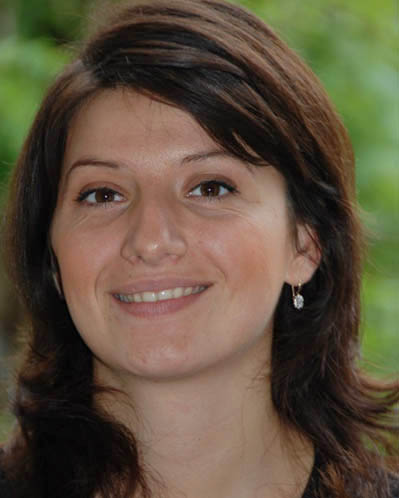
Mag. Elizabeta Kitanović is Executive Secretary for Human Rights of the Conference of European Churches in Brussels, editor of the Human Rights Training Manual for European Churches, and editor and founder of the first European Churches Human Rights Library and the CSC Annual Report (2007-2014). In 2009-2010, she was a member of the Advisory Panel of the EU Fundamental Rights Agency and was again nominated for 2012-2014. Ms Kitanović completed her studies in Theology and post-graduate studies in International Affairs at the Political Science Faculty in Belgrade. She graduated from the Diplomatic Academy of the Ministry of Foreign Affairs of the Serbian Government. She is completing her PhD.
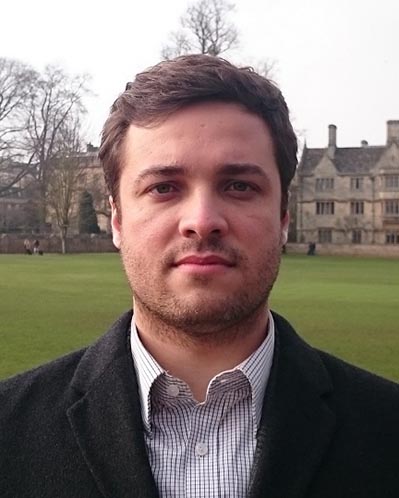
Rodrigo Vitorino Souza Alves is a member of the Academic Staff of the Federal University of Uberlandia (Brazil). He was an Academic Visitor at the University of Oxford (2014-2015) and is Director of the Brazilian Center for Studies in Law and Religion. He has published academic works and has spoken at the National Congress of Brazil and the United Nations Office at Geneva, where he served as guest speaker at the Sixth Session of the Forum on Minority Issues on 'Beyond freedom of religion or belief: Guaranteeing the rights of religious minorities'. He was a member of the Expert Advisory Group for the International Development Law Organization (IDLO) study on freedom of religion or belief. He is a guest academic at the Sacred and Secular Project (Open University) and the Brazilian National Reporter for the Constitute Project. In 2015-2016 he coordinated the project 'Religion and Human Rights: Promoting the Respect for Religious Diversity', which received the support of the Ministry of Education of Brazil.
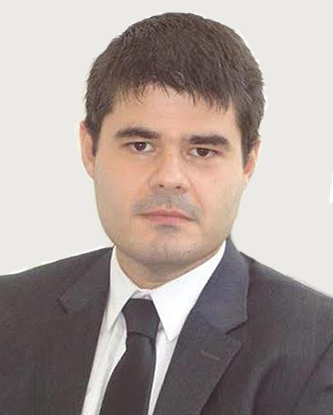
Fábio Carvalho Leite serves as the Deputy Legal Advisor to the Rector of Pontifical Catholic University of Rio de Janeiro, Brazil (PUC-Rio), where he is a professor and coordinator of Constitutional Law. He graduated in at PUC-Rio in 1999, and earned a Doctor in Law from Rio de Janeiro State University in 2008. He is member of Constitutional Law Commission of Order of Brazil Lawyers. He is also a Researcher on Productivity at National Research Council (CNPq) with a research project about Free Speech (and Its Limits). His publications include State and Religion: Religious Liberty in Brazil (Juruá 2014), 'Freedom of Expression and the Right to Honor: New Guidelines to an Old Problem', in Fundamental Rights and Constitutional Jurisdiction, Clemerson Cleve & Alexandre Freire, eds (Revista dos Tribunais 2014), and 'Declaratory Action of Constitutionality: Expectation, Reality and Some Propositions', Sequência: Federal University of Santa Catarina Law Review 2014.
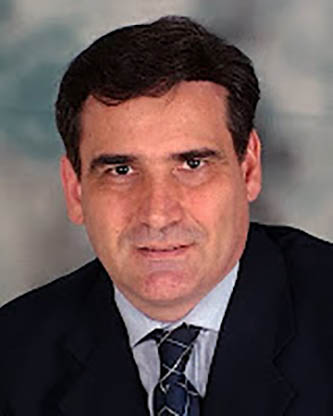
Aldir Guedes Soriano is an Attorney at Law and an independent researcher in Presidente Venceslau, in São Paulo, Brazil. He is a member of the Law and Religious Liberty Commission of the Order of Attorneys of Brazil (São Paulo Section). He received his postgraduate degree in Public Law from the Brasiliense Public Law Institute and in Constitutional Law from Salamanca University (Spain). He is a member of the Latin American Consortium for Religious Freedom. He has published several works on human rights and religious liberty in books as well as articles in newspapers and magazines. In 2002 he published his first book titled Religious Liberty According to Constitutional and International Law. He was also coordinator of a book with the contribution of renowned scholars from several countries, which was released at the library of the Brazilian Supreme Federal Court in November 2009.
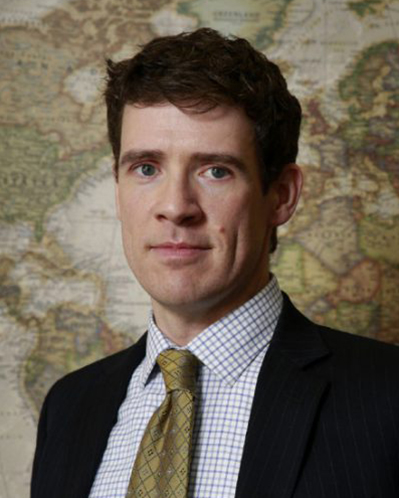
Dr. Andrew P.W. Bennett is Senior Fellow at the Canadian research and educational institutition Cardus, and Chair of the Cabinet of Canadians for Cardus's Faith in Canada 150 program. He served as Canada's first Ambassador for Religious Freedom and Head of the Office of Religious Freedom from 2013 to 2016 and at the same time served as Canada's Head of Delegation to the International Holocaust Remembrance Alliance. An academic as well as a public servant, Dr. Bennett holds degrees in History from Dalhousie and McGill as well as a PhD in Political Science from the University of Edinburgh. Prior to his appointment as Ambassador for Religious Freedom, Dr. Bennett served in a variety of roles in the federal public service. He is active as a Sub-deacon and cantor in the Ukrainian Greek-Catholic Church through St. John the Baptist parish in Ottawa.
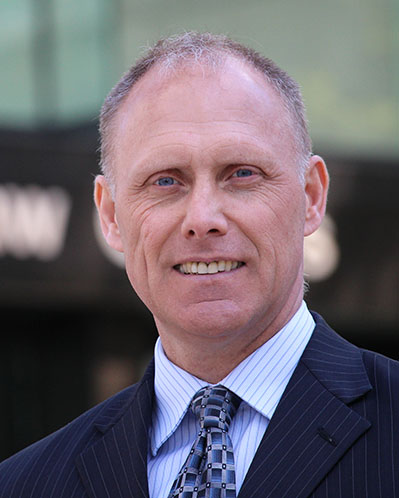
Barry W. Bussey is Director of Legal Affairs for the Canadian Council of Christian Charities. He has been involved in charity law seminars, written articles on charity law and religious freedom, and has participated in litigation in charity law at Federal Court, and intervention at lower courts and at the Supreme Court of Canada. He holds post-graduate degrees in Constitutional Law, Political Science, and Theology and a Master in Peace and Conflict Studies and has commenced PhD studies in Law at the University of Leiden, Netherlands. He was recently appointed Associate Adjunct Professor in the School of Law at the University of Notre Dame (Sydney, Australia). He was Associate Director of the Public Affairs and Religious Liberty Department at the General Conference of Seventh-day Adventists in Washington, D.C. and represented the Adventist Church and the International Religious Liberty Association in Washington, and at the UN, where he serves as secretary for the NGO Committee on the Freedom of Religion or Belief. He has served as Pastor of two church districts in Newfoundland.
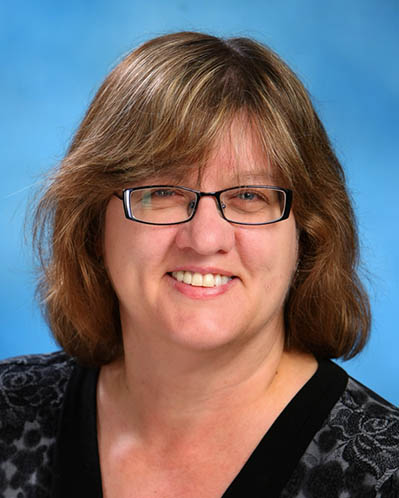
Diana Ginn is a professor at the Schulich School of Law, Dalhousie University. She currently teaches Law and Religion, Administrative Law, and Property Law. She has also taught courses on Alternative Dispute Resolution, Women and the Law, and Public Law, and Health Law, and is currently cross-appointed to Gender and Women's Studies. She has served as Associate Dean, Academic, of the Law School and is a former member of the Nova Scotia Law Reform Commission. Her research interests include freedom of religion and the state duty of neutrality; tensions between freedom of religion and other protected rights; understandings of secularity; judicial oversight of administrative decision-making; the relationship between aboriginal title and predominant patterns of land-holding; and accommodating aboriginal self-government within a federal state.
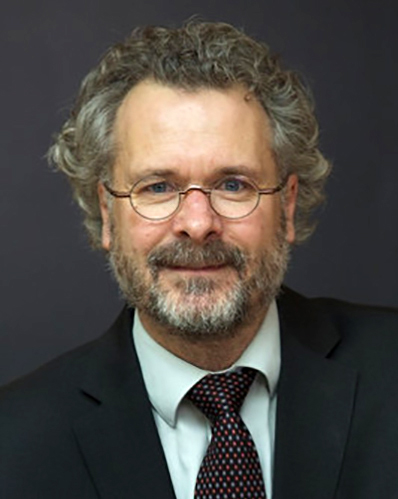
M. Pierre Noël is Professor Titulaire and, since February 2010, Dean of the Faculty of Theology and Religious Studies at the University of Sherbrooke in Québec, Canada. He has been at Sherbrooke since 2002. His research interests are in theology and religious law, and his teaching focuses on ecumenical issues and interfaith dialogue. He received a Bachelor's in Theology and a Master’s in Theology from the University of Sherbrooke, and a PhD in Theology from Laval University in Québec City. He did postdoctorate study specializing in Religious Law at the Catholic University of Louvain in Belgium and the University of Tübingen in Germany.
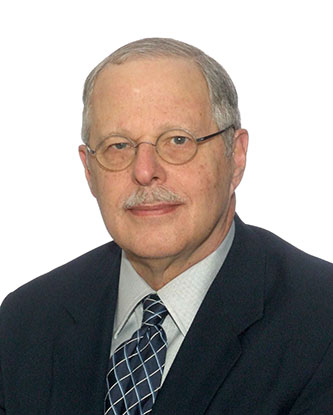
David Novak holds the J. Richard and Dorothy Shiff Chair of Jewish Studies as Professor of Religion and Philosophy in the University of Toronto, where he is a member of University College and the Joint Centre for Bioethics. He was the Edgar M. Bronfman Professor of Modern Judaic Studies at the University of Virginia and has been on the faculties of Oklahoma City and Old Dominion universities, the Jewish Theological Seminary of America, and Baruch College of the City University of New York. He was Jewish Chaplain to St. Elizabeth’s Hospital in Washington DC and served as pulpit rabbi of several US congregations. He is a Fellow of the Royal Society of Canada and of the American Academy for Jewish Research. He is a founder, Vice President, and Coordinator of the Panel of Inquiry on Jewish Law of the Union for Traditional Judaism, founder and member of the Board of Directors of the Institute on Religion and Public Life, a Consulting Scholar and member of the Board of Advisors of the James Madison Program in American Ideals and Institutions of Princeton University, and Project Scholar in the Religious Freedom Project of the Berkley Center of Georgetown University. He holds an AB (University of Chicago), a Master of Hebrew Literature (Jewish Theological Seminary of America), and a PhD in philosophy (Georgetown University) and is author of 16 books and over 300 articles and reviews.
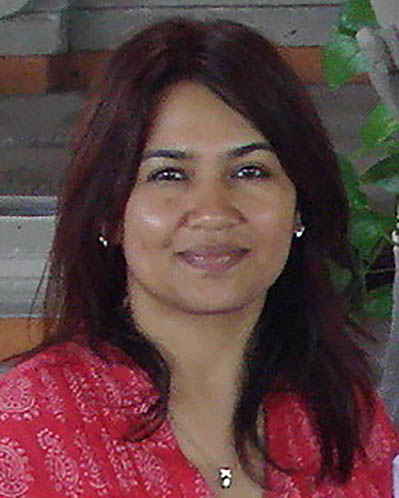
Gopika Solanki is Associate Professor of Political Science at Carleton University in Canada. She is the author of Adjudication in Religious Family Laws: Cultural Accommodation, Legal Pluralism, and Gender Equality in India (Cambridge University Press, 2011) and the co-author of Journey from Violence to Crime: A Study of Domestic Violence in the City of Mumbai. She is currently working on a book project on legal pluralism and indigenous politics, The Split Personality of Law: Political Decentralization, Gender, and Adivasi Legal Mobilization in India. The project has been funded by the Social Sciences and Humanities Research Council of Canada.
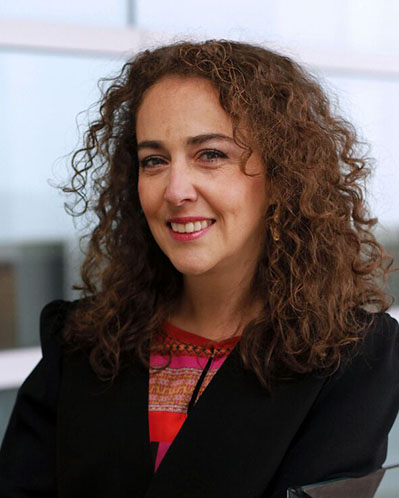
Anastasía Assimakópulos Figueroa has a Bachelor in Law from the Pontifical Catholic University of Chile. She also holds a Bachelor in Canon Law, Pontifical University of the Holy Cross (Rome), and a Doctor of Law, University of Los Andes, Chile. She teaches Canon Law and a legal research seminar at the School of Law of the University of Los Andes, Chile. Her research interests are in Canon Law Marriage, freedom of religion, the relationship between the state legal system, and the Canon Law in Chile.
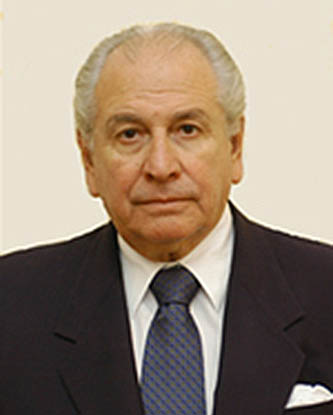
José Luis Cea is the former President of the Constitutional Court in Chile and Professor of Constitutional Law at Pontifical Catholic University of Chile. In May of 2016 he was awarded the title of Honorary Academician by the Royal Academy of Jurisprudence and Legislation of Spain for his contributions to legal education. He earned a law degree from PUC, a postgraduate degree in Teaching and Methodology of Legal Research from the University of New York, and a Master's in Legal Institutions and a Doctor of Law from the University of Wisconsin. He has been Visiting Professor at the Universities of Georgetown, Yale, Stanford, American, Princeton, Wisconsin, Bucharest, Santiago de Compostela and Catolica del Uruguay. Professor Cea is the author of over two hundred publications in Chile and abroad. His main research interests relate to political institutions, freedom of expression, the Economic Public Order, the Constitutional Justice, Human Rights and Guarantees, regionalization and constitutional hermeneutics.
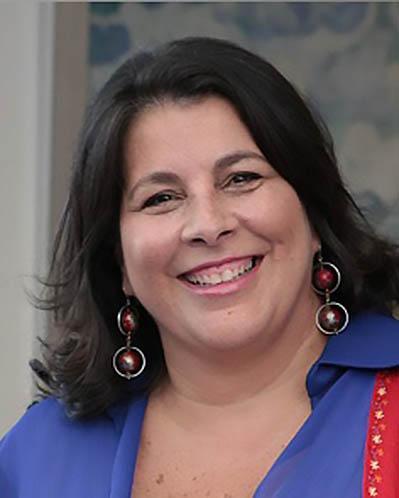
Ana María Celis Brunet is Associate Professor in the Faculty of Law of the Pontifical Catholic University of Chile (UC), where she teaches Canon Law and Law and Religion, as well as post graduate courses in different programs. She received her License and Doctoral degree in Canon Law at the Pontificia Università Gregoriana (Rome, Italy) with the dissertation La relevancia canónica del matrimonio civil a la luz de la Teoría general del Acto jurídico, contribución teórica a la experiencia jurídica chilena. Professor Celis is an ecclesiastical lawyer before the Ecclesiastical Court of Santiago. She is Director of the Center for Law and Religion at UC, which began in 2005 as Centro de Libertad Religiosa, a center for studying Church-State matters and promoting religious freedom. She was the secretary and then President (2013-2016) of the Consorcio Latinoamericano de Libertad Religiosa (Latin American Consortium for Religious Freedom). She is also Vice President of the International Consortium for Law and Religion Studies (ICLARS).
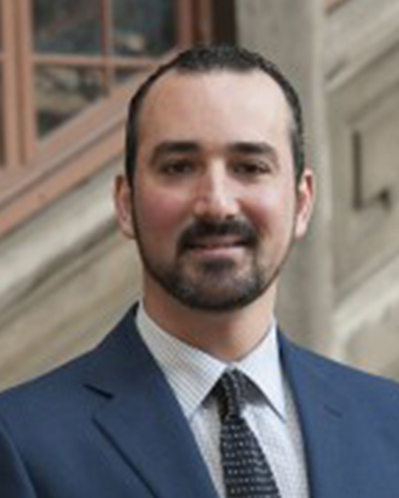
Miguel Sánchez-Lasheras is a Professor in the School of Law at the Pontificial Catholic University of Valparaiso, Chile, where he teaches Law and Religion and History of Law. He is currently the Associate Editor of the Journal of Legal History Studies (‘Revista de Estudios Histórico-Jurídicos) and is a Judge in the Ecclesiastical Court of Valparaíso. He obtained his Degree in Law (2006) and PhD in Law (2011) at the University of Navarra (Spain). His doctoral thesis was published as Las negociaciones concordatarias y la transición política española (1972-1976). El acuerdo de 28 de julio de 1976 (Comares 2012). Other publications include 'Iglesia Católica y transición política en España' (with Javier Martínez-Torrón), in Revista General de Derecho Canónico y Derecho Eclesiástico del Estado 30 (2012); 'Migraciones forzosas y hecho religioso en el África subsahariana', in Posibilidades y barreras para el desarrollo en el África Subsahariana, (Thomson-Reuters Aranzadi 2015), 'Derecho y factor religioso en Chile y en el Perú: ¿hacia la gestión pública de la diversidad religiosa?' Revista Chilena de Derecho 43 (1) (2016). He has made research stays in Italy, the US, and Kenya.
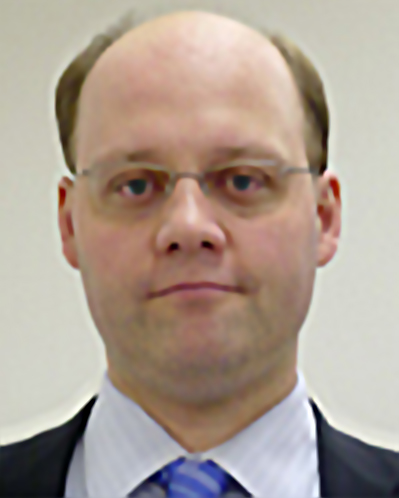
ICLic JUDr Záboj Horák, PhD, LLM, is Associate Professor in the Legal History Department at the Law School of Charles University, Prague. He holds a master’s degree from the Law School of Charles University in Prague (1998), a master’s degree from the Westphalian Wilhelm University of Münster (Germany) in the field of Private Law (LLM, 2001), doctoral degrees from the Law School of Charles University in Prague in the field of Theoretical Legal Science (PhD, JUDr, 2002, 2003), and a licentiate degree from the John Paul II Catholic University of Lublin (Poland) in the field of Canon Law (ICLic, 2006). He focuses on Church law and state law on Churches and religious societies, legal history, and Roman law. He is vice-chairman of the Church Law Society, Prague, and a member of the Editorial Board of the Church Law Review, Prague, which appears three times a year, in Czech, Slovak and English.
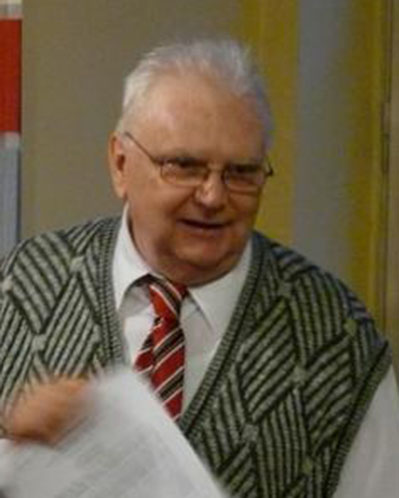
P. Prof. JUDr. Jiří Rajmund Tretera OP, is a Czech lawyer, a Catholic priest and member of the Dominican Order, and a professor at the Faculty of Law of Charles University in Prague. He is one of the leading European experts in the field of ecclesiastical law. He is chairman of the Church Law Society and the chief editor of the professional, peer reviewed journal Church Law Review. His publications include The State and the Church in the Czech Republic and 'Church and State in the Czech Republic' published in the European Journal for Church and State Research.
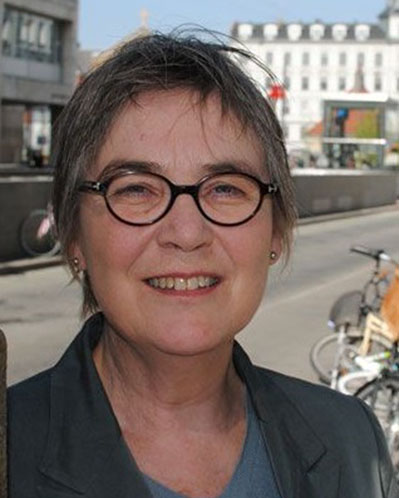
Lisbet Christoffersen is Professor of Law, Religion and Society at Roskilde University, and Adjunct Professor of Ecclesiastical Law at the Faculty of Theology, University of Copenhagen. She teaches EU and International law, public law and sociology of law, and is the legal member of the Danish Council for Independent Research within Social Sciences. Professor Christoffersen contributed several articles to the RELIGARE project, and was the leader of the NordForsk project on Law, Religion and Ethics (2006-09) out of which came Law & Religion in the 21st Century—Nordic Perspectives (2010). Christoffersen has also contributed to a wide range of Danish, Nordic and International research projects within law and religion. Most recently, a European project within the framework of HERA/Uses of the Past on Protestant Nordic Law with Christoffersen as Project Leader is approved for funding (September 2016 to August 2019).
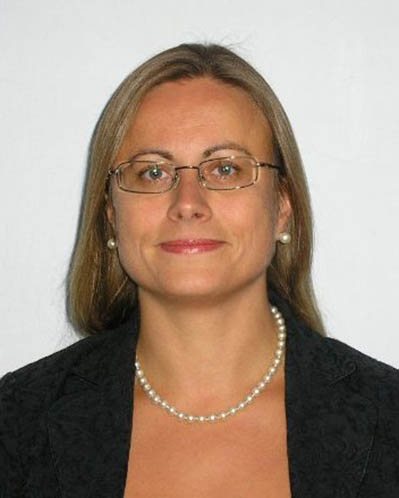
Dr. Merilin Kiviorg (DPhil Oxford, mag iur Tartu) is a senior research fellow in public international law and human rights at the University of Tartu Faculty of Law and an author of many articles published on law and religion, and on European human rights law and practice regarding freedom of religion or belief. She has taught international law, human rights and international relations at the University of Oxford, as well as serving as a Lecturer and Assistant Professor in International Law, Human Rights and EU Law at the University of Tartu in Estonia. She was a Max Weber Fellow at the European University Institute in Florence. She has also served as an expert advisor on freedom of religion or belief for non-governmental and governmental bodies (the Estonian Ministry of Internal Affairs, the Legal Chancellor, and the Estonian President). She is currently teaching courses on Comparative Human Rights and on Religion and Human Rights. Her current research interests are human rights and religion in Europe with special focus on Eastern Europe and specifically Russia.
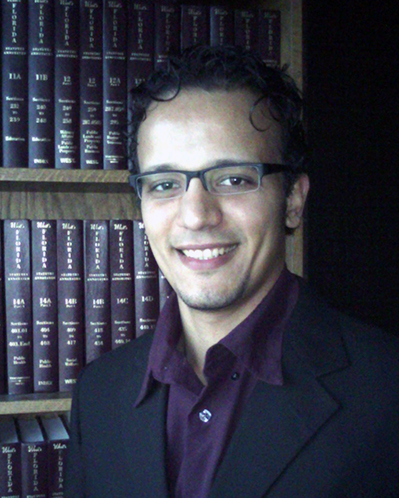
Dr. Abadir M. Ibrahim attained a JSD at St. Thomas University School of Law LLM/JSD Program in Intercultural Human Rights (Florida, United States). He has two LLM degrees — one in international law and one in human rights law — and received an LLB from the Addis Ababa University (Ethiopia). Dr. Ibrahim currently lectures in the areas of human rights law and human rights and religion, is an international law consultant, and represents victims of human rights violations at the African Commission on Human and Peoples’ Rights and the United Nations Human Rights Council. His research interests include human rights in Islam, human rights education, and human rights and democracy in Africa.
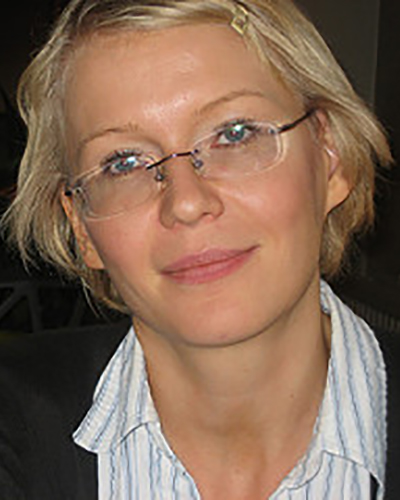
Pamela Slotte, DTheol, is tenure track professor in minority studies at Åbo Akademi University and an Academy of Finland Academy Researcher, where her topic of research is 'Management of the Sacred: A Critical Inquiry'. Dr. Slotte is trained in theology and law, is adjunct professor of theological ethics with philosophy of religion at Åbo Akademi University, as well as adjunct professor of religion and law research at the University of Helsinki. She was a member of the multidisciplinary project 'Legitimacy and Ethics. The Individual, the Community and the Rule of Law' financed by the Academy of Finland (2005-2008), and a member of the Research Project 'Human Rights: Law, Religion and Subjectivity' (2009-2013) at the Erik Castrén Institute of International Law and Human Rights. She is PI of the HERA funded project Protestant Legacies of Nordic Law: Uses of the Past in the Construction of the Secularity of Law (2016-2019). Among her latest publications is the co-edited volume Revisiting the Origins of Human Rights (Cambridge University Press 2015).
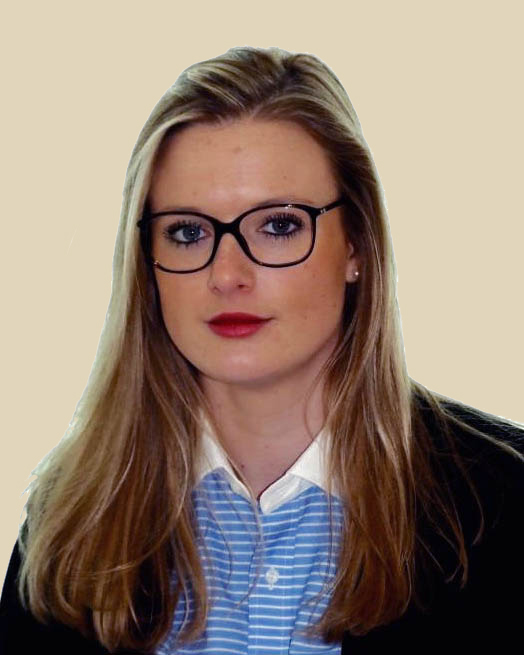
Deborah Thebault is a doctoral student at the University of Oxford, and the University Paris 5 Descartes. She also teaches Administrative Law in Paris. She participated in the Conference of the Oxford Journal of Law and Religion Academy, St Hugh’s College, University of Oxford in 2015. She was published in the co-edition of the book Why Antitrust? (À Quoi Sert La Concurrence?), and contributed to the soon to be published Encyclopaedia, Industrial and Commercial Public Services.
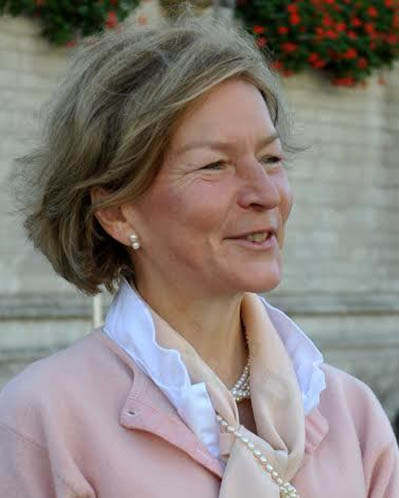
Marie-Claire Foblets, Lic Iur, Lic Phil, PhD Anthrop, is Director of the Department of Law and Anthropology at the Max Planck Institute for Social Anthropology in Halle/Saale (Germany), and a professor of Anthropology and Law at the Catholic University of Louvain in Belgium. She is also Honorary Professor of Law and Anthropology, Martin Luther University Halle-Wittenberg, Germany. In 2001 she was elected to the Royal Flemish Academy of Belgium for Science and the Arts (KVAB). In 2004 she received the Francqui Prize, the most distinguished scientific award in the humanities in Belgium. From September 2009 to November 2010 she was the co-chair of the Assises de l’ Interculturalité (The Round Tables on Interculturalism) in Belgium. Professor Foblets has conducted extensive research and published widely on issues of migration law, including the elaboration of European migration law after the Treaty of Amsterdam, citizenship/nationality laws, compulsory integration, anti-racism and non-discrimination. In the field of anthropology of law, her research focuses on cultural diversity and legal practice, with a particular interest in the application of Islamic family law in Europe, and more recently in the accommodation of cultural and religious diversity under State law.
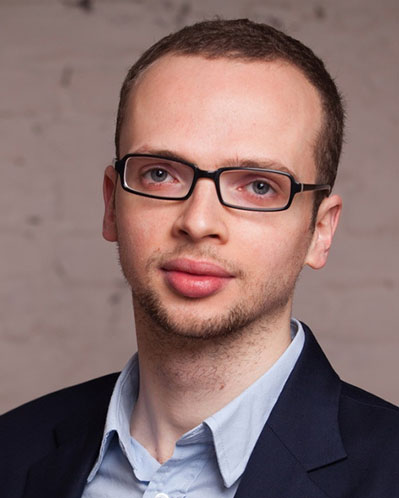
Armin Langer holds a BA in Philosophy and Religious Studies from the Eötvös Lorand University in Budapest and a BA in Jewish Theology from the University of Potsdam. He studied Talmud at the Conservative Yeshiva in Jerusalem. Currently he is an MA student of Jewish Theology in Potsdam, Germany. He is co-founder and coordinator of the intercultural Salaam-Shalom Initiative, established by Jews and Muslims in Berlin to promote peaceful co-existence and solidarity through projects that raise awareness of social and institutional exclusions in mainstream German society. Several of Langer's articles on anti-Semitism and anti-Muslim racism have been published in German, Hungarian, English, and Arabic in print and online newspapers, including die ZEIT, Frankfurter Rundschau, and Deutsche Welle.
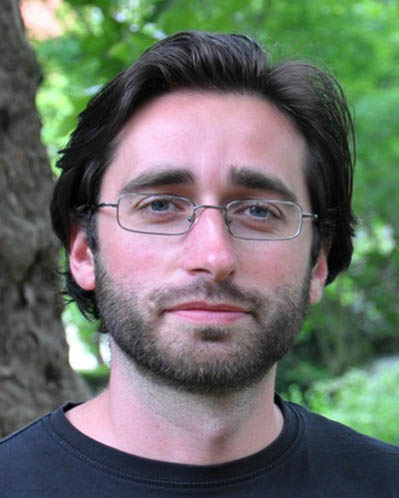
Mihai Popa is a Research Fellow at the Hellenic Foundation for European and Foreign Policy (ELIAMEP), where he is a member of the research program on "Directions in Religious Pluralism in Europe: Examining Grassroots Mobilizations in the Shadow of the European Court of Human Rights' Religious Freedom Jurisprudence" (Grassrootsmobilise). His research interests include the anthropological analysis of social security, migration and transnational social networks, state bureaucracy, the relation between legal norms and social action, religion and the ethics of everyday life. He has studied sociology (BA) and social anthropology (MA) at the National School of Political Studies and Public Administration in Bucharest and is a doctoral student at Max Planck Institute for Social Anthropology and Martin Luther University Halle-Wittenberg, where he has taught seminars in social anthropology at the undergraduate level. His doctoral project has focused on the analysis of social security mechanisms among Old Believers living in Northern Dobruja, Romania, examining how the inhabitants of one village combine kinship, religion, and state policy in the everyday provision of material support for the needy, and of care for the ill and the elderly.
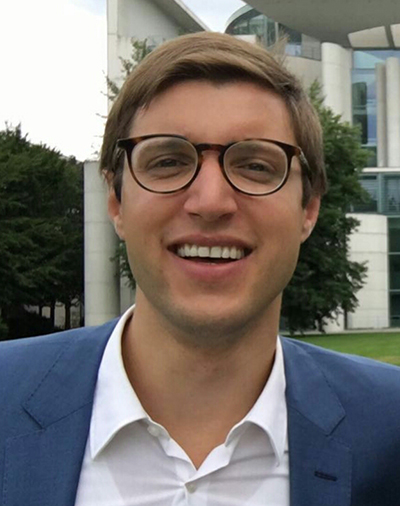
Clemens Steinhilber is a PhD candidate at Heidelberg University. He is currently doing his legal clerkship (Juristischer Vorbereitungsdienst) at the Higher Regional Court of Berlin (Kammergericht). Within this legal training, he works as a law clerk at the German Federal Chancellery (Bundeskanzleramt) in the unit responsible for the Chancellor’s relations with religious communities and at the German Federal Constitutional Court (Bundesverfassungsgericht). Clemens has been a lecturer in the faculties of Law at Montpellier I and Paris Sud University as well as at Humboldt-University Berlin. He holds law degrees with distinction from Heidelberg (First State Examination), Krakow (LLM) and ICP/Paris Sud (DU Gratianus) University.
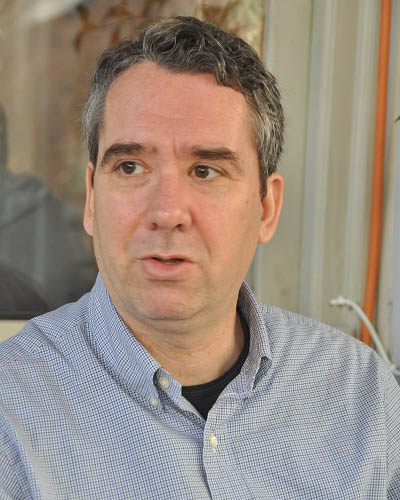
Yannis Ktistakis is a lawyer-senior partner in Ktistakis & Associates Law Firm, and Assistant Professor of Public International Law both at the Faculty of Law, Democritus University of Thrace, Komotini (Greece) and at the Faculty of Political Science and International Relations, Boğaziçi University, Istanbul (Turkey). He is the legal advisor of the Ecumenical Patriarchate. Former memberships include the Executive Board of EUMC, the Greek Equal Treatment Committee, the National Commission for Human Rights and the Secretary General of the Greek League for Human Rights (NGO). He has over 35 publications on issues related to immigration law, religious freedom, Islamic Law, protection of human rights and the jurisprudence of the ECHR. Professor Ktistakis has successfully defended 53 cases before the European Court of Human Rights and one collective complaint before the European Committee of Social Rights. He is fluent in Greek (mother tongue), English and French.
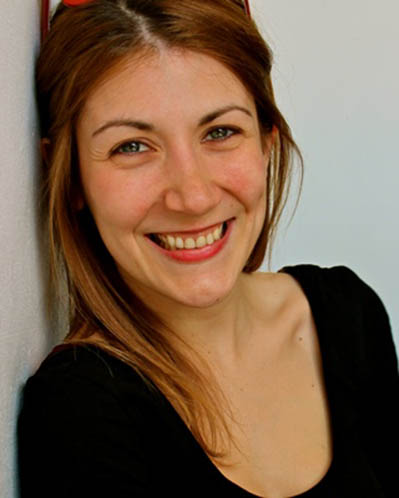
Margarita Markoviti is a postdoctoral researcher at the European Research Council project, “Grassrootsmobilise”, based at the Hellenic Foundation for European and Foreign Policy. She completed her PhD at the London School of Economics and Political Science under the title “Education and the Europeanization of Religious Freedoms: France and Greece in comparative perspective”. Margarita holds a BA in History from King’s College, London, a Master en Affaires Européennes from the Institut d’Études Politiques, Sciences Po in Paris, and an MSc in European Studies, Ideas and Identities from the LSE. Her research focuses on religion and national identity, education and European integration, religious freedoms and social cohesion in light of religious pluralism.
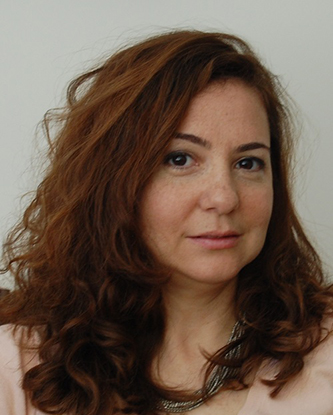
Ceren Özgül is a recipient of Wenner-Gren’s Hunt Fellowship and a visiting scholar at New York University’s Kevorkian Center for Near Eastern Studies, where she is revising her book manuscript, The Return: Armenian Conversions, Secularism, and Law in Turkey, for publication. She is a legal and cultural anthropologist who received her PhD in Cultural Anthropology from the Graduate Center, CUNY. Her dissertation, From Muslim Citizen to Christian Minority: Tolerance, Secularism, and Armenian Return Conversions in Turkey, analyses the return conversions of forcibly Islamized Armenians in modern Turkey back to Armenian Christianity and presents a framework for examining how religious minorities, political agency, legal responsibility, and conditions of belief are produced through the legal and cultural codification of religious tolerance in Turkey. Dr. Özgül was the 2013-14 Manoogian Simone Foundation Post-Doctoral Fellow at the University of Michigan, Ann Arbor.
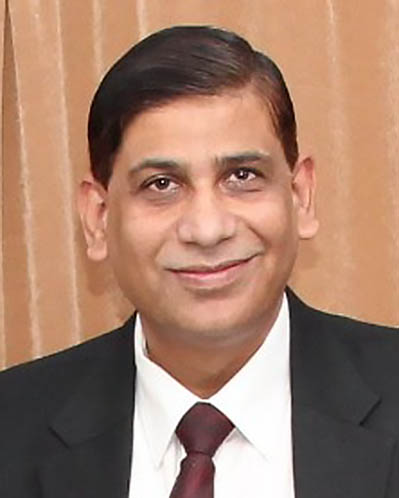
Prof. Dr. Faizan Mustafa is the Vice-Chancellor of NALSAR University of Law, Hyderabad, India. He was the founder Vice-Chancellor of National Law University, Orissa. He has served as Dean, Faculty of Law, Aligarh Muslim University and Registrar of AMU. He is a gold medalist LLM from Aligarh Muslim University. He completed his PhD in Copyright Law. He also has a diploma in International and Comparative Human Rights from International Institute of Human Rights, Strasbourg, France. He has authored several books and some 100 national and international papers. He has worked in unexplored areas such as Religious Conversion Laws, Strict Liability Law, and Freedom of Information Law.
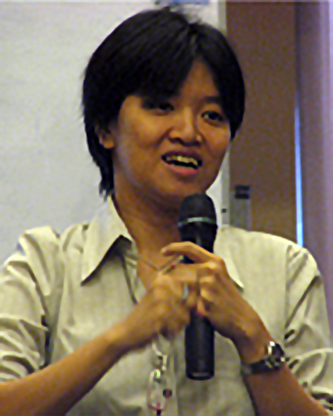
Renata Arianingtyas is the founder and on the Board of Trustees for the Indonesian Legal Resource Center in Jakarta, Indonesia. She is Program Officer for Religious Freedom and Human Rights for the Asia Foundation. Previously, she served as Program Manager for Human Rights and Justice for the Tifa Foundation. She earned a Master of Arts in International Law and Legal Studies from Central European University and a bachelor's degree in Political Science and Government from the University of Indonesia. She is a Scholar in the Paramadina Graduate School in Jakarta.
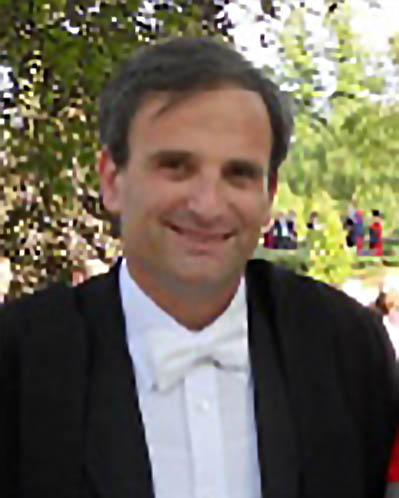
Professor Joseph David has held academic positions in the United States (U Penn, Rutgers, NYU), UK (Oxford), and Israel (Hebrew U, IDC). Currently, he is a Professor of Law and Religion at Sapir Academic College, Israel. Prof. David teaches and studies Law and Religion, Comparative Jurisprudence, Legal Theory, and Legal History. His publications include the following books: The State Rabbinate: Election, Separation and Freedom of Expression, with Eyal Yinon (2000); The State of Israel: Between Judaism and Democracy; A Compendium of Interviews and Articles, ed. with U. Dromi, S. Sapir, S. Kennedy (The Israel Democracy Institute 2003); The Family and the Political: The Political Meaning of the Family in a Liberal Society (The Israel Democracy Institute (R. A.) 2012); Toleration within Judaism, with M. Goodman, C. Kaiser, and S. Levis-Sullam (The Littman Library of Jewish Civilization 2013); and Jurisprudence and Theology in Late Ancient and Medieval Jewish Thought (Springer 2014).
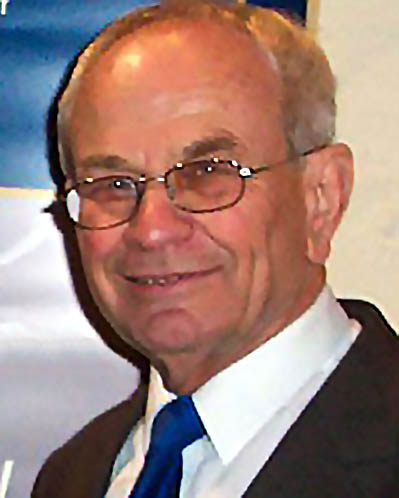
Professor Asher Maoz is the Founding Dean of the Peres Academic Center Law School. He was for many years on the Faculty of Law at Tel-Aviv University, where he taught Constitutional Law, State and Religion, Freedom of Speech, Family Law, and Succession Law. Professor Maoz holds the degrees LLB and LLM, both summa cum laude (Hebrew University), M Comp L (University of Chicago), JSD (Tel-Aviv University), and Doctor Honoris Causa (Ovidius University, Romania). He is the founding Editor-in-Chief of Law, Society and Culture; a former editor of the Tel-Aviv University Law Review; a member of the Scientific Board, Review Dionysina; a member of the Academic Council of The International Academy for Jewish Leadership; and a member of the Academic Council, Shalem College, Jerusalem. Maoz was Chair of the Law Commission for Journalists’ Privileges; served as academic advisor to the Knesset Constitution, Law and Justice Committee on adopting a constitution for the State of Israel; and serves with many other organizations. He has taught at several universities in the United States, Europe, and Australia, and is the author of numerous publications on the intersections of law and religion. He is a member of the Steering Committee of the International Consortium for Law and Religion Studies (ICLARS).
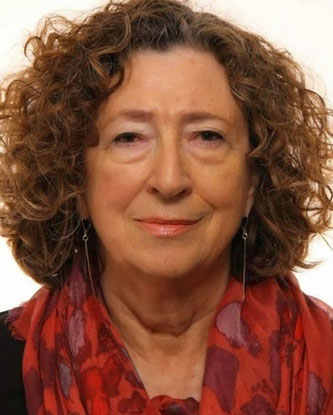
Frances Raday is a member of the United Nations Working Group on Discrimination against women in law and in practice. She assumed her function on 1st May 2011. She is a former member of CEDAW. Professor Raday is currently the Director of the Concord Research Centre for Integration of International Law in Israel at Haim Striks Law School, Colman. She is Professor Emerita, Hebrew University, Lieberman Chair for Labour Law; Honorary Professor, University College London; and Doctor Honoris, University of Copenhagen. She has held academic appointments at Oxford University, University of Southern California, Tulane University, and University of East Africa. Ms. Raday is the author of numerous academic books and articles on human rights, labor law, and feminist legal theory. She has acted as legal counsel on precedent-setting human rights cases in Israel’s Supreme Court, including advancing women’s constitutional right to equality in political representation, participation in religious ceremony, religious court procedures and divorce, and combatting employment discrimination, in retirement age, sexual harassment and promotion.

Pasquale Annicchino is Adjunct Professor of Law at St. John's Law School in New York and Research Fellow at the Robert Schuman Centre for Advanced Studies of the EUI. He is also Senior Research Associate at the Cambridge Institute on Religion & International Studies, Cambridge University. He has been Adjunct Professor of Law at BYU Law School (USA) and Visiting Professor at the Catholic University of Leuven (Belgium). He serves as book review editor for Religion and Human Rights: an International Journal and is a member of the editorial board of Quaderni di Diritto e Politica Ecclesiastica published by Il Mulino. His main interests include Legal Theory, Law and Religion, EU Law, National Security Law, Religion and Politics. Among his recent publications: 'A Transatlantic Partnership for International Religious Freedom? The United States, Europe and the Challenge of Religious Persecutions', Oxford Journal of Law and Religion, 2016 and Law & International Religious Freedom. The Rise and Decline of the American Model, Routledge, forthcoming 2017. He has been appointed by the Italian Minister of Interior as a member of the Italian Council for the relationships with Muslim communities.
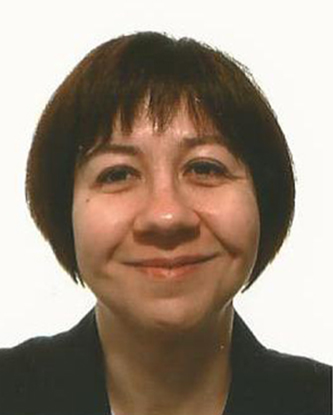
Rossella Bottoni is specialised in Law and Religion. She wrote her PhD dissertation on the origins of secularism in Turkey (1839-1938), which received in 2007 the Arturo Carlo Jemolo Award for the best PhD dissertation in Law and Religion-related disciplines. She is currently Researcher of History and Systems of Church-State Relations in the Faculty of Political Sciences at the Catholic University of Milan, and Adjunct Professor of Church-State Relations in the Department of Political and Legal Sciences and International Studies at the University of Padua, Italy.
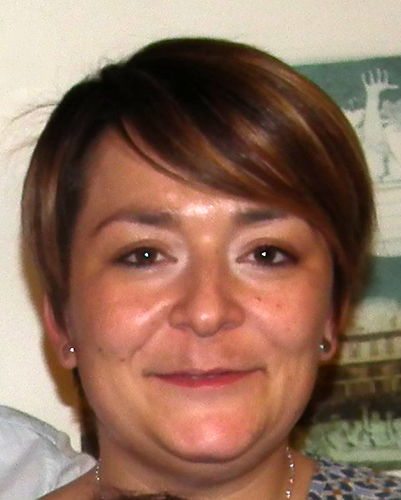
Cristiana Cianitto attended the Faculty of Law in the Università degli Studi in Milan, where she took her undergraduate degree in Law in 2000 and her PhD in Philosophy of Law, curriculum in Ecclesiastical and Canon Law, in 2005. Since October 2007 she has been a Lecturer in Canon Law at the University of Milan, Faculty of Law. Her main fields of investigation are church and state relationships in UK with a particular attention to the Anglican canon law and the British legal system in relation to religious issues and hate crimes, hate speech, freedom of religion, and freedom of expression in the UK, USA, India, and Italy. In 2008 she was a founding member of the International Consortium for Law and Religion Studies (ICLARS), and she has since continuted as the general coordinator of ICLARS secretariat. She serves as a case note editor for the Oxford Journal of Law and Religion and is Coordinator of the Secretariat of the International Consortium for Law and Religion Studies. She is a member of the editorial committee of the journal Quaderni di diritto e politica ecclesiastica and a casenote editor of Oxford Journal of Law and Religion.
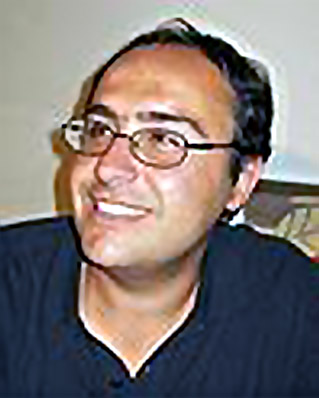
Alessandro Ferrari is an Associate Professor in the Department of Law, Economy, and Cultures, at the Università degli Studi dell’Insubria. He did his PhD at the University of Milan and at the University of Paris XI. His main research interests are Church and State issues in Italy and West Europe; French laïcité; Secularism and Civil Religion; Democracy and Religion; Islam in Italy and in Europe; Comparative Law of Religions. He is a member of CNRS (Centre national de la recherche scientifique) Research Group on 'Sociologie des Religions et de la Laïcité', the International Migration, Integration, and Social Cohesion Network, and the editorial board of Dalmon.
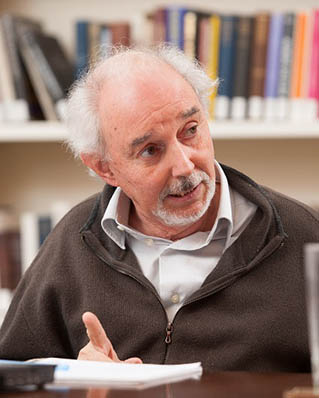
Silvio Ferrari, founder and honorary lifetime president of the International Consortium for Law and Religion Studies (ICLARS), was visiting professor at the University of California (Berkeley), the Institute for Advanced Legal Studies (London), the École Pratique des Hautes Études (Sorbonne, Paris), and the University of Leuven. His publications in English include Law, Religion, Constitution (edited with Cole Durham, Cristiana Cianitto, and Donlu Thayer); Religion in Public Spaces (edited with Sabrina Pastorelli); Law and Religion in the 21st Century (edited with Rinaldo Cristofori); Law and Religion in Post-Communist Europe (edited with Cole Durham and Elizabeth Sewell), Islam and European Legal System (edited with Anthony Bradney). He is a member of the Advisory Council on Freedom of Religion and Belief of the Organization for Security and Co-operation in Europe / Office for Democratic Institutions and Human Rights, member of the International Academy of Comparative Law, a founding editor of the Oxford Journal of Law and Religion, and member of the editorial board of the Ecclesiastical Law Journal. He delivered a Messenger Lecture at Cornell University and received the Distinguished Service Award of the International Center for Law and Religion Studies.
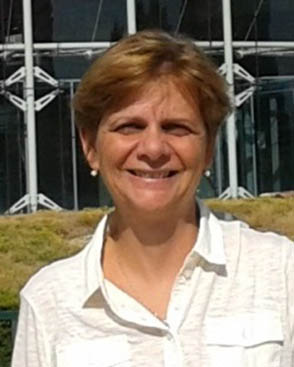
Maria Luisa Lo Giacco is Associate Professor in Law and Religion, Department of Law, University of Bari Aldo Moro. She has a PhD in Ecclesiastical and Canon Law from the University of Naples “Federico II” (1996). She is a Doctor in Canon Law, Lateranense Pontifical University, Rome (2008). Previously, she taught Ecclesiastical Comparative Law and later, Law and Religion in the Mediterranean Area. Her research interests are Law and Religion in Europe, Comparative Law, Religious Freedom, Family Law, and Pilgrimage. Her recent publications include Le competenze delle Regioni in materia ecclesiastica (Bari 2004); Pellegrini, romei e palmieri. Il pellegrinaggio fra diritto e religione (Bari 2008); La famiglia e i suoi soggetti. Temi giuridici (Bari 2008); 'Religione e cultura nell'adozione internazionale', Diritto & Religioni, 2015; and 'Hidden meanings of the words "religion" and "religious" in the legal discourse', Semiotica. Journal of International Association for Semiotic Studies, 2016.
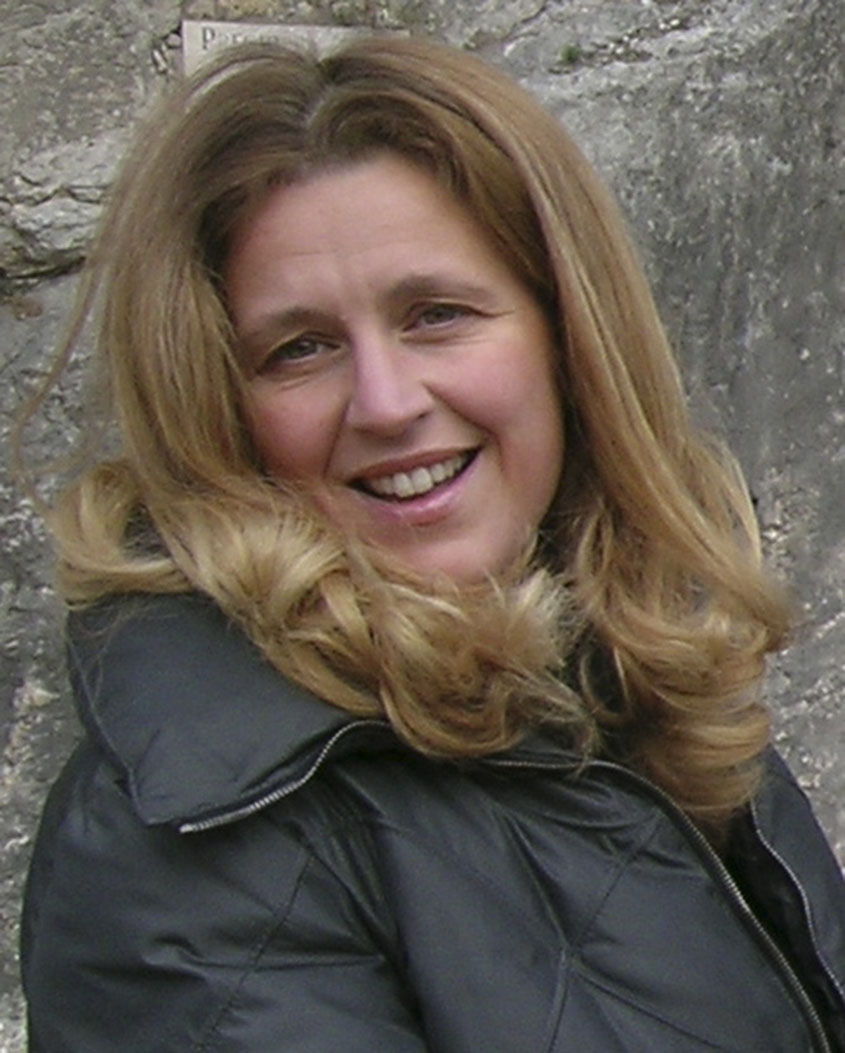
Susanna Mancini (PhD, European University Institute) teaches Public Comparative Law at the University of Bologna. She has written widely on law and religion, multiculturalism, minority rights, secession, citizenship, reproductive rights, and gender and the law. She is a co-author of the Dorsen, Rosenfeld, Sajo, Baer and Mancini Comparative Constitutional Law, Cases and Materials (West, 2016). Her latest books are Constitutional Secularism in an Age of Religious Revival (with Michel Rosenfeld, OUP 2014) and The Conscience Wars: Rethinking the Balance between Religion, Identity, and Equality, ed. with Douglas NeJaime and Reva Siegel (CUP forthcoming 2017). Professor Mancini is the Italian member of the Executive Committees of the International Association of Constitutional Law. She was a Braudel Senior Fellow at the European University Institute, a visiting professor at Fordham, Toulouse and the Radyzner School of Law (Israel) and she is a recurrent visiting professor at the Central European University (Budapest), the Cardozo School of Law, and the Paul H. Nitze School of Advanced International Studies of Johns Hopkins University.
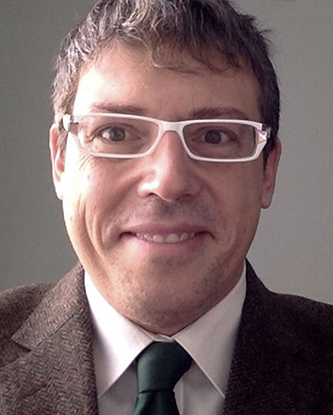
Vincenzo Pacillo is Associate Professor at the Law Department of the University of Modena and Reggio Emilia, Italy. He has been visiting professor of law at University of Leicester Law School, at the DeMontfort University Law School, and at the Faculty of Theology of Lugano (Switzerland). He received his PhD in Law from the University of Perugia. He is a member of the editorial board of Quaderni di Diritto e Politica Ecclesiastica published by Il Mulino. He has published in many journals, including Contemporary Issues in Law and The Ecclesiastical Law Journal. He is Member of the Ministerial Commission on Religious Pluralism in Public Schools (since 2015). He was National Rapporteur (Italy) on Religious Freedom and Religious Discrimination in the Workplace, European Consortium For Church and State Research (2015) and Collaborator for LABDI, Emilia Romagna Laboratory on Forms of Discriminations, Institutions and Positive Actions (2008 – 2010).
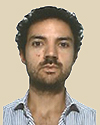
Michele Saporiti (PhD in Philosophy of Law) is research fellow at the University of Milano-Bicocca and postdoctoral researcher in the laboratory Groupe Sociétés Religions Laïcités (EPHE-CNRS) in Paris, where he is carrying out research on sovereignty and contemporary religions. Since 2014 he is adjunct professor of Legal Philosophy at the Financial Guard Corps Academy in Bergamo. In 2015 he was accepted as Junior Academic Visitor (subject: Philosophy of Law) at the Law Faculty of the University of Oxford. His studies follow two main guidelines: 1) law and ethics (family, conscientious objection, metaethics); 2) philosophy of international law and politics (sovereignty, religions, global powers, human rights).
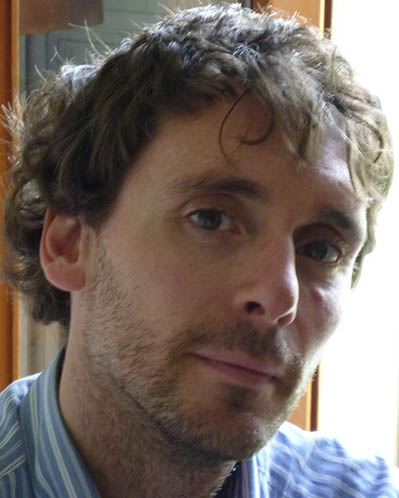
Davide Strazzari is a lecturer in Comparative Constitutional Law at the Sociology and Social Science Department, Trento University, where he teaches Italian Public Law and EU law. In 2008 he published the book Discriminazione razziale e diritto. Other fields of research are the constitutionalization of EU law, cross-border cooperation, legal pluralism and the territorial governance of immigration, and legal pluralism and freedom of religion in the European context as a consequence of international migrations. Davide Strazzari has been a research fellow at the American University, Washington, DC (2002), at Robert Schuman University (Strasbourg, 2004), and at Université catholique de Louvain la Neuve, Belgium (2012).
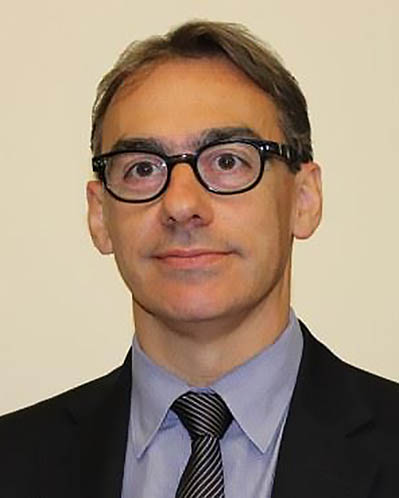
Marco Ventura is a full professor in law and religion at the Law Department of the University of Siena (Italy) and the director of the Centre for Religious Studies at the Fondazione Bruno Kessler in Trento (Italy). After a PhD at the University of Strasbourg, he visited the universities of London (UCL), Oxford, Strasbourg, Brussels (ULB), the Indian Law Institute in Delhi, the University of Cape Town, and Al Akhawayn University in Morocco. From 2012 to 2015 he was a professor at the Katholieke Universiteit Leuven. His last book is From Your Gods to Our Gods. A History of Religion in British, Indian and South African Courts (Cascade Books, 2014). From 2013 to 2015 he visited Vietnam as an expert in the dialogue between the European Union and the Vietnamese Committee on Religious Affairs.
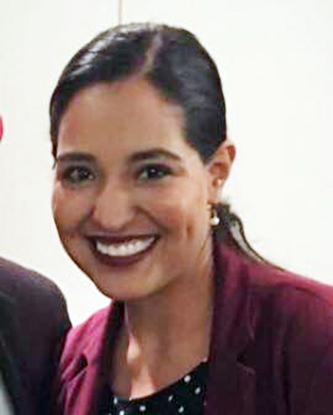
Cecilia Palomo Caudillo is a Professor of International Law of Human Rights and Legal Reasoning at Universidad Panamericana campus Aguascalientes. She is the Jessup National Administrator for Mexico, International Law Students Association. She is pursuing a PhD in international law from Universidad Internacional de La Rioja.
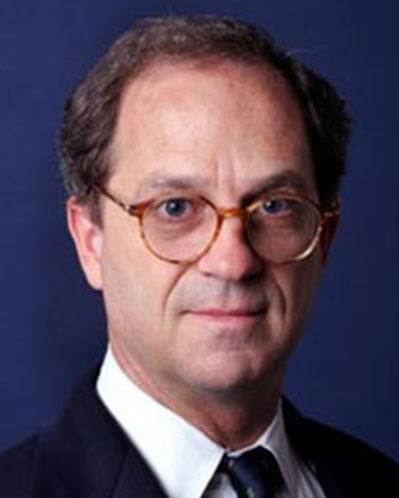
T. Jeremy Gunn is Professor of Law, International University of Rabat. He earned his PhD from Harvard University, Juris Doctor from Boston University (magna cum laude), MA from the University of Chicago, and BA with combined majors in International Relations and Humanities from the Honors Program at Brigham Young University (High Honors with Distinction). His publications include his Harvard dissertation, published as A Standard for Repair: The Establishment Clause, Equality, and Natural Rights, and the articles 'Religious Symbols in Public Schools: The Islamic Headscarf and the European Court of Human Rights Decision in Sahin v. Turkey'; 'Permissible Limitations on Religion'; 'Freedom of Religion and International Politics', World Politics Review; 'Religious Symbols and Religious Expression in the Public Square'; 'The Human Rights System'; and the book, No Establishment of Religion: America’s Original Contribution to Religious Liberty, ed. with John Witte Jr. (Oxford University Press 2012).
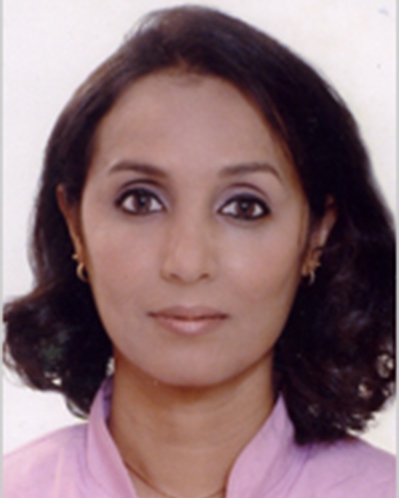
Amal Idrissi is Professor of Law and Political Science at the University of Moulay Ismail in Meknès, Morocco. She previously taught at University Hassan I in Settat, Morocco. She received a National Doctorate in Public Law from Hassan II University in Casablanca. In addition to teaching public law and constitutional law, her research interests and publications focus on women and law in the contemporary Muslim world. She wrote, with T. Jeremy Gunn, the article on Morcocco for the Brill Encyclopedia of Law and Religion.
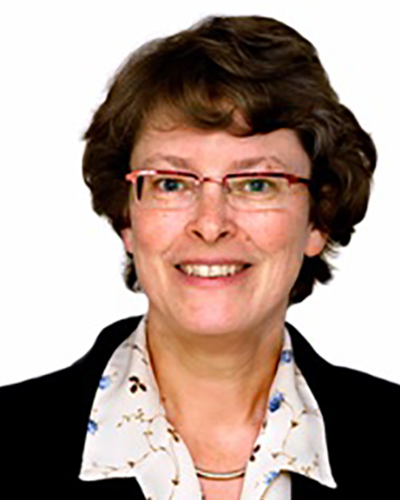
Prof. Dr. S.Ch. Sophie Christine van Bijsterveld graduated in law at the University of Utrecht and received a doctorate in Law at Tilburg University. She was Assistant Professor of Constitutional and Administrative Law, Associate Professor of European and International Public Law, and Professor of Religion, State and Society at Tilberg's School of Humanities. Since September 2014 she has been Professor of Religion, Law and Society at the Radboud University in Nijmegen. She has lectured and published extensively in the fields of (international) human rights protection, religious liberty, constitutional law, and hybrid governance, with more than 200 publications to her credit. Since June 2007, Dr. van Bijsterveld has been a member of the Dutch Upper House of Parliament [Eerste Kamer der Staten-Generaal] for the Christian Democratic Party (CDA). She is a Member of the Board of the Scientific Institute of the Christian Democratic Party in the Netherlands, a founding editor of the Dutch Journal of Religion, Law and Policy, member of the Advisory Board of the Oxford Journal of Law and Religion and of the Academic Advisory Board of the International Center for Law and Religion Studies.
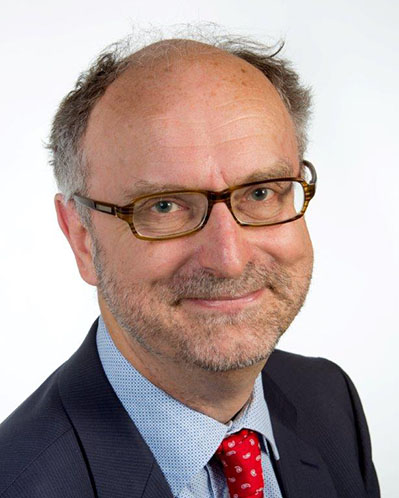
[Represented at the Conference by Tom Herrenberg] Prof. Dr. Paul B. Cliteur is Professor of Jurisprudence at Leiden University in the Netherlands. He was also Professor of Philosophy at the Delft University (1995-2002). Prof. Dr. Cliteur’s research is in the field of ethics, the philosophical foundations of the law, more in particular moral dilemmas around multicultural society, fundamental rights and the relationship between law and worldview. Among his published writings are The Secular Outlook: a Defense of Political and Moral Secularism (2010), "Taylor and Dummett on the Rushdie Affair", in Journal of Religion and Society, Volume 18 (2016, and "Is Humanism Too Optimistic? An Analysis of Religion as Religion", in The Wiley Blackwell Handbook of Humanism.
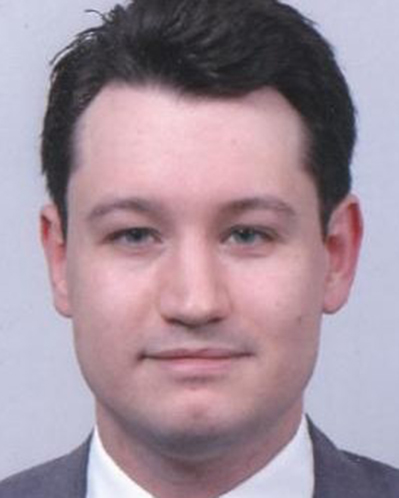
Tom Herrenberg, currently a visiting researcher at Oxford University, is a PhD Candidate and Lecturer at Leiden University in the Netherlands, where he received a Master of Laws (Jurisprudence and Philosophy of Law) in 2013 and a University Teaching Qualification ("Basis Kwalificatie Onderwijs" [BKO]) in 2016. He received a Master of Laws (Criminal Law) and Bachelor of Laws (Dutch Law) from Maastricht University in 2012 and 2009 respectively. At Maastricht he was a student tutor, a lecturer, and a research assistant in the Department of Criminal Law and Criminology.
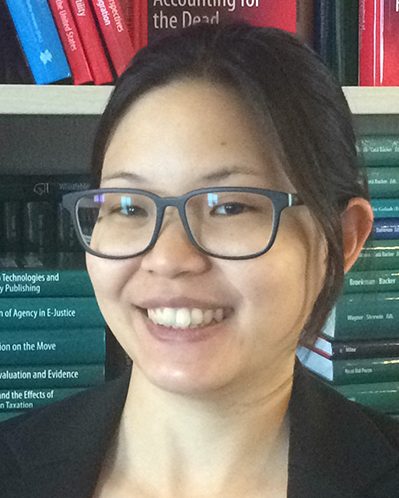
Christi Lue manages a publishing portfolio within the field of Law at Springer Science+Business Media. The portfolio covers a diverse range of areas within the field including International Law, Comparative Law, Philosophy of Law, and Legal History. Christi is currently looking to develop new publication areas within her portfolio and welcomes new projects, particularly within the area of Law and Religion. Prior to joining the law program, Christi spent four years working in the philosophy program within Springer.
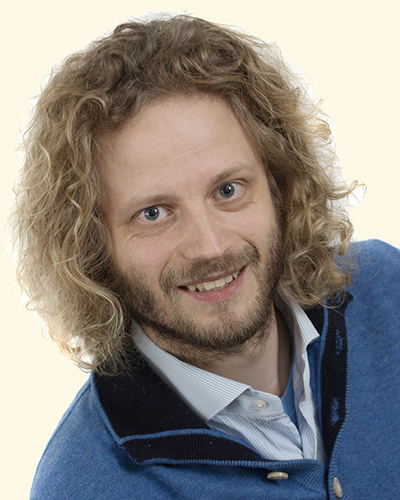
Dr. Jeroen Temperman is Associate Professor of Public International Law at Erasmus University Rotterdam. He is also the Editor-in-Chief of Religion & Human Rights. His research is focused on freedom of religion or belief, the right to education, freedom of expression and extreme speech, religion–state relationships, and equality. His book Religious Hatred and International Law is published by Cambridge University Press, as part of the Cambridge Studies in International and Comparative Law (prefaced by Heiner Bielefeldt, UN Special Rapporteur on freedom of religion or belief). Among other books, he has authored State–Religion Relationships and Human Rights Law (2010) and edited The Lautsi Papers: Multidisciplinary Reflections on Religious Symbols in the Public School Classroom (2012). Key publications further include articles published in Human Rights Quarterly, Oxford Journal on Law and Religion, Netherlands Quarterly on Human Rights, and Annuaire Droit et Religion. In 2014 he was awarded a Fulbright Scholarship, facilitating a visiting professorship at American University Washington College of Law. He completed his doctoral degree at the Irish Centre for Human Rights (National University of Ireland, Galway).

Ingeborg van der Laan is an Assistant Editor at the Law Department of Brill. She is responsible for the management of various publications on the International Law list, and for developing and maintaining relationships within a global network of scholars, university librarians, administrators and other publishers. The subject areas include Comparative Law, Public International Law, Environmental Law, Law and Religion, Islamic Law, European Law, Eastern European Law, Law of International Institutions. Ingeborg received a Master of Civil Law at Leiden University, served an internship at Cantonal Court of Amsterdam, and took an International Law course at Galway University.
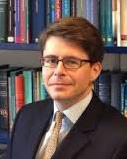
Dr. Gerhard van der Schyff is an Associate Professor in the Department of Public Law, Jurisprudence and Legal History at Tilburg Law School in the Netherlands. Dr. van der Schyff teaches and researches comparative and European constitutional law and is especially interested in the interpretation, protection and limitation of the right to freedom of religion. He has published widely, including in journals such as the European Constitutional Law Review and the Oxford Journal of Law and Religion. In 2015 he held a Humboldt Foundation Fellowship for Experienced Researchers at the Chair of Professor Christian Calliess at the Free University of Berlin, researching various aspects of constitutional identity. He also won a VENI subsidy, funded by the Netherlands Organisation for Scientific Research (NWO), on the topic of constitutional review in the United Kingdom, the Netherlands and South Africa, which resulted in his second doctorate in 2010 from Leiden University. Dr. van der Schyff also has a doctorate from the University of Antwerp in Belgium (2005). His research has been cited in various academic works and by various judges. The Dutch cabinet made use of Dr. van der Schyff’s research in drafting its response to the 2010 report by the State Commission on the Constitution.
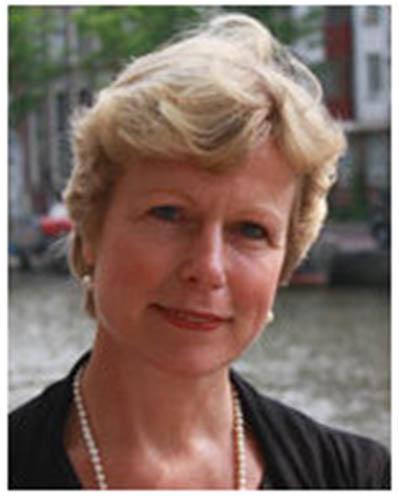
Carla Zoethout is associate professor of Constitutional Law at the Faculty of Law of the University of Amsterdam. Previously, she worked at the Department of Jurisprudence at the University of Leiden and at the Department of Constitutional and Administrative Law of the Erasmus University Rotterdam, where she obtained her doctorate in 1995 with a thesis titled Constitutionalism. A comparative study of limiting government power by law (Gouda Quint, Arnhem). From 2001 to 2004 she worked at the Constitutional Law Department of the Free University of Amsterdam. Her research interests include: comparative constitutional law, human rights (especially religious freedom), the role of the European Court of Human Rights. She is a member of the editorial board of the Tijdschrift voor Religie, Recht en Bestuur (Religion, Law and Policy Review), and a member of the editorial board of the Tijdschrift voor Bestuurswetenschappen en Publiekrecht (Journal of Administrative Sciences and Public Law) among others.
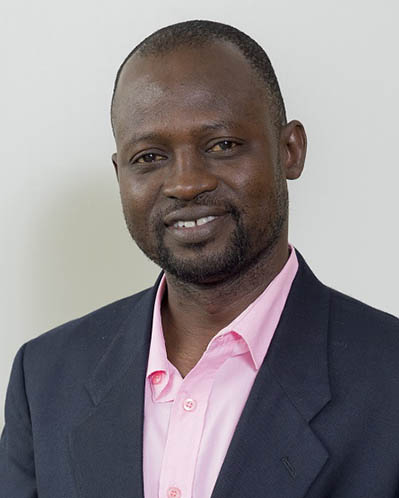
Ahmed Salisu Garba attended the University of Jos, Faculty of Law, earning First and Second Degrees in 2004 and 2011 respectively. Called to the Nigerian Bar in 2005, he now teaches law at the Bauchi State University, Gadau, in Nigeria. A PhD candidate at the Faculty of Law, Bayero University, Kano, Nigeria, he is working on the regulation of religious preaching in Nigeria with a focus on Islamic Preaching Board Laws. He was a visiting scholar at the University of Iowa College of Law in the United States from August–December 2013.
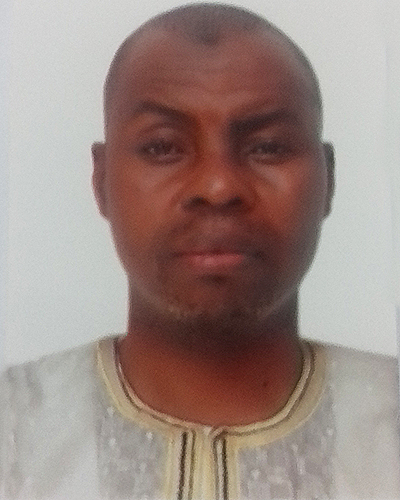
Afis Ayinde Oladosu is a Professor in the Department of Arabic and Islamic Studies, at the University of Ibadan. He specializes in Islamic Studies broadly defined and has expertise and competence in Islamic Law and Jurisprudence, Middle Eastern, North African and Cultural Affairs. Before his promotion to the rank of Professor at the University of Ibadan in 2011, Afis has participated in many international conferences on Islam in and Muslim Culture in the United States, Malaysia, Uganda, Saudi Arabia and Sudan among others. He was a Fulbright Scholar to the University of Southern Maine, United States, a Bill Gates Scholar and fellow, African Scholar Program, at the University of Massachusetts, Amherst, a Visiting Professor to the International Islamic University of Malaysia, Kuala Lumpur and was once on sabbatical to the University of Ghana. Afis has published in all continents of the world except Latin America. He is a consultant and resource person to the Nigerian Supreme Council for Islamic Affairs (NSCIA), Muslim Students Society of Nigeria (MSSN), Federation of Muslim Women Organisation of Nigeria (FOMWAN) among others. He is an external examiner and assessor to Universities in Nigerian and abroad including International Islamic University of Malaysia (IIUM), Kuala Lumpur.
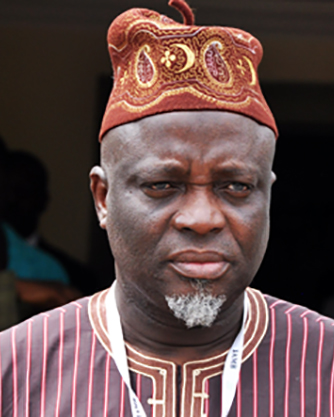
[Represented at the Conference by Afis Ayinde Oladosu] Professor Is-haq Olarewaju Oloyede, Secretary-General of the Nigerian Supreme Council for Islamic Affairs, was appointed on August 1, 2016 by the Federal Government of Nigeria as Registrar of the Joint Admissions and Matriculation Board (JAMB). He holds a PhD in Islamic Studies from the University of Ilorin, where he is Professor of Islamic Studies and was formerly Vice Chancellor and Director of Academic Planning. He is a fellow of the Islamic Academy of Cambridge, United Kingdom; Fellow, Academy of Entrepreneurship; Member, Nigerian Association of Teachers of Arabic and Islamic Studies (NATAIS); Member, Editorial Board, Centre for Islamic Legal Studies, ABU, Zaria. He was National President of the Unilorin Alumni Association, a member of the University Governing Council; Students’ Disciplinary Committee; Revenue Yielding Committee; Honorary Degree and Monument Committee; Strategic Planning Steering Committee; and Member, Capital Project Implementation Task Force. In 2005 Prof. Oloyede was appointed co-secretary of the National Political Reform Conference by President Olusegun Obasanjo. He has been a consultant to the National Universities Commission on Educational Reforms in Nigeria and was Chairman of University of Ilorin Holdings Ltd, Executive Secretary of National Inter-Religious Council (NIREC), and President of the Association of African Universities (AAU).
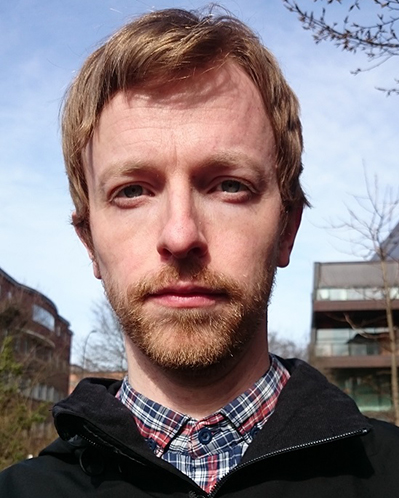
Helge Årsheim is a post-doctoral research fellow in the Faculty of Theology, University of Oslo. He defended his doctoral dissertation, Lost in Translation? Religion-Making at Four UN Human Rights Committees, 1993-2013 in 2015. He holds a master's degree in Religious Studies from the University of Bergen, with a specialization on the legal regulation of religion. Previously, he worked for the United Nations Association of Norway and the Norwegian Immigration Appeals Board. He has been working as a doctoral candidate at the Faculty of Theology since January 2010. In the fall of 2011 he was a visiting scholar at the Baldy Center for Law and Social Policy at SUNY Buffalo, New York. His research addresses the myriad intersections between official authorities and religious ideas, institutions and people. He also works for the cross-disciplinary research network Religion in Pluralist Societies (PluRel), where he launched and edits a scholarly blog on contemporary issues in the study of religion.
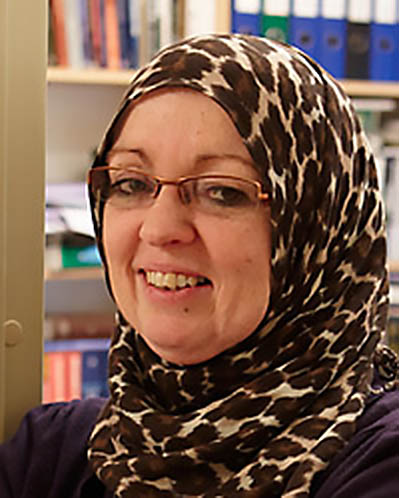
Dr. Lena Larsen is the project director of the Oslo Coalition on Freedom of Religion or Belief of the Norwegian Centre for Human Rights at the University of Oslo. She received her doctorate in 2011 from the University of Oslo. Her research interests include Islam in Europe, Islamic jurisprudence with a focus on fatwas, Islam and gender, and freedom of religion or belief. She is fluent in English and Arabic with some competency in Spanish and French. Dr. Larsen has numerous publications to her credit.
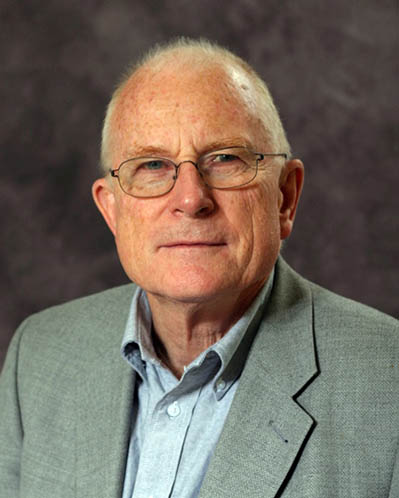
Tore Lindholm is Emeritus Professor (philosophy) at the Norwegian Centre for Human Rights, Faculty of Law, University of Oslo and board member of the Oslo Coalition on Freedom of Religion or Belief and of the Human Rights Committee of Church of Norway. His research interests focus on the grounds for embracing universal human rights, in particular the right to freedom of religion or non-religious basic conviction, and on the ongoing two-way traffic between human rights and religions/basic convictions, in particular with respect to Islam and Muslims. He co-edited Facilitating Freedom of Religion or Belief, now published in Indonesian and Russian. He edited Islamic Law Reform and Human Rights: Challenges and Rejoinders and made a study of Muslim immigrants to Oslo, Religious Commitment and Social Integration: Are There Significant Links? Other writings include 'The Cross-Cultural Legitimacy of Universal Human Rights: Plural Justification Across Normative Divides', in Francioni and Scheinin, eds., Cultural Human Rights and 'Magna Carta and Religious Freedom', in Magraw & Martinez, eds., Magna Carta and the Rule of Law.
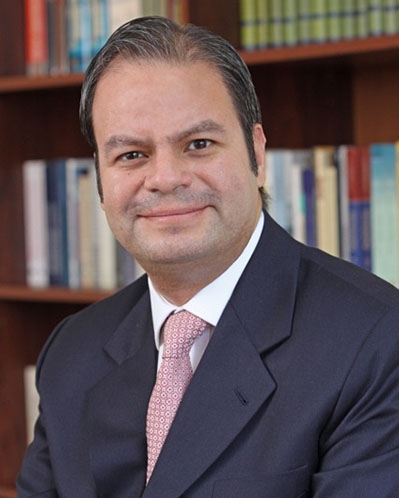
Oscar Díaz Muñoz has a PhD in Law from the University of Zaragoza (Spain) and a Licentiate in Law from the Pontifical Catholic University of Peru. He is advisor and former Secretary to the Constitutional Tribunal of Peru and Professor of Constitutional Law in the Graduate School at the University of San Martín de Porres (Peru). His publications include: El derecho fundamental de libertad religiosa: jurisprudencia y doctrina constitucional, 2014 (The Fundamental Right of Religious Freedom: Jurisprudence and Constitutional Doctrine); El derecho constitucional de libertad religiosa del menor: familia, escuela y tratamientos médicos, 2010 (The Constitutional Law of Religious Freedom for Minors: Family, School, and Medical Care); La moción de censura en el Perú, 1997 (The Motion of Censure in Peru); and numerous articles on Constitutional Law and Human Rights, appearing in various books and law journals published in Peru and other countries.
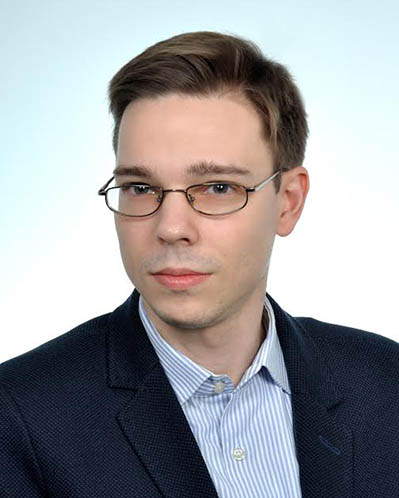
Dr. Piotr Szymaniec currently holds the position of Vice-director of the Institute of Socio-Legal Studies at The Angelus Silesius University of Applied Sciences in Wałbrzych (Poland). He specializes in the history of legal, political and social thought, legal philosophy and public security. He is the author of more than forty publications, including the monograph Republikanizm dla społeczeństwa handlowego. Myśl polityczno-prawna Adama Fergusona (‘Republicanism for a Commercial Society. The Political and Legal Thought of Adam Ferguson,’ 2013). He is the editor and co-author of the monographic volume Zasada proporcjonalności a ochrona praw podstawowych w państwach Europy (The Principle of Proportionality and the Protection of Fundamental Rights in the European States, 2015). He has participated in many international conferences, including in Stockholm, Hannover, Vienna, St. Petersburg, and Banská Bystrica. Szymaniec holds a PhD in Law from the University of Wrocław.
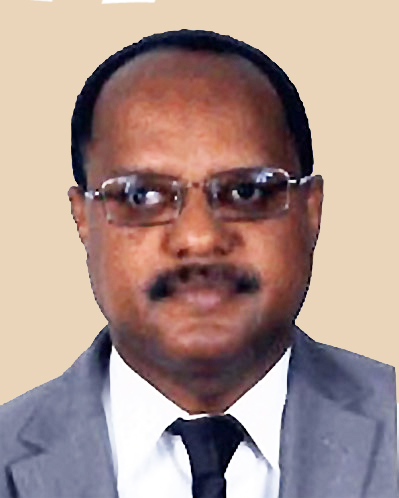
Dr. Mohamed Saeed M. Eltayeb is a consultant for the Human Rights Department of the Qatari Ministry of Foreign Affairs. He holds an LLB (Khartoum), diplomas in international relations and international law (Amsterdam and Lund), and a PhD in international human rights law (Utrecht). He has worked, inter alia, at the Netherlands Institute for Human Rights, International Commission of Jurists, Faculty of Law of the University of Khartoum, and the Institute for Women, Gender and Development Studies of the Ahfad University (Sudan). He was a visiting scholar at the Swiss Institute of Comparative Law of the University of Lausanne, the Human Rights Centre at Essex University, the Law and Religion Program at Emory University School of Law, the Islamic Legal Studies Program at Harvard Law School, and Raoul Wallenberg Institute of Human Rights and Humanitarian Law at Lund University. He is author of A Human Rights Approach to Combating Religious Persecution: Cases from Pakistan, Saudi Arabia and Sudan (Hart 2001), the article on Qatar in the Brill Encyclopedia of Law and Religion, a chapter in the forthcoming ICLARS Series title Religion, Pluralism, and Reconciling Difference, and several articles on human rights in Muslim countries.
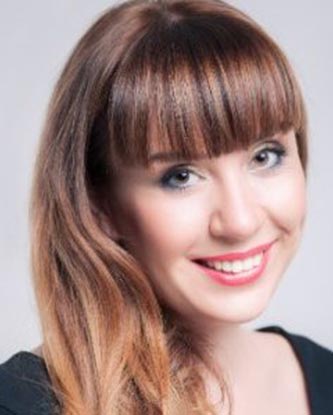
Elena Markova graduated from the Law Faculty of Lomonosov Moscow State University (MSU). In 2009 she became a research associate at the Chair of Constitutional and Municipal Law, MSU. Elena Markova teaches Theory of Constitutional Law and Russian Constitutional Law (for bachelor students). Her teaching includes law and religion, political parties, e-democracy, human rights and the Internet (courses for master students). Constitutional problems of freedom of religion limitation in comparative perspective are at the center of her research interests. Elena Markova works as Deputy Editor-in-Chief of Constitutional and Municipal Law Journal. She is also Secretary General of the Russian Association of Constitutionalists.
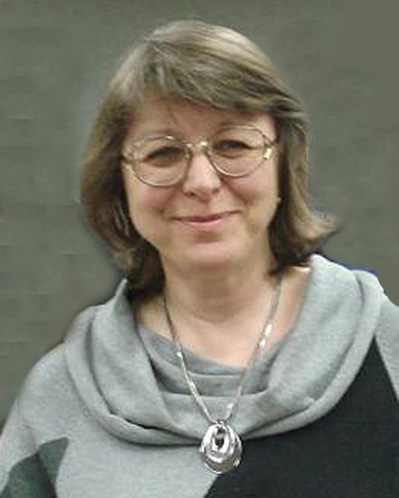
Elena Miroshnikova is Professor in the Department of Theology at Tula State Pedagogical University, Tula, Russia. Among her publications are The Cooperation Model in State-Church Relations: Experience and Problems (Lambert 2011) and, with Derek Davis, The Routledge International Handbook of Religious Education (2012). She is a member of ICLARS, an expert in religious studies, particularly in church-state relations, and religion and education. She has been a visiting scholar at the International Center of Law and Religion Studies (ICLRS) at Brigham Young University, and is an expert of Human Rights Without Frontiers (Brussels) and an expert of Russian Association of Religious Freedom. She is also the recipient of "The Honor Worker of Higher Education in the Russian Federation," conferred by the Ministry of Science and Education of Russia.
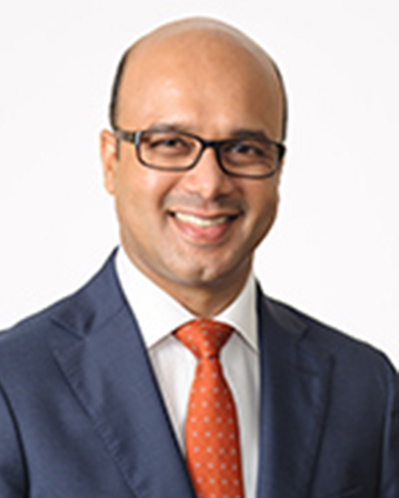
Arif Jamal is an Assistant Professor of Law at National University of Singapore. He studied politics (BA) and law (LLB) in Canada and was called to the Bar of British Columbia. Thereafter, he undertook post-graduate work in the UK earning an LLM degree, focusing on Islamic law, at the School of Oriental and African Studies (SOAS) and then completing his doctorate in the Faculty of Laws at University College London (UCL). Before joining NUS, Arif was a Teaching Fellow at UCL Laws and at the School of Law at SOAS, and had also been a Visiting Researcher with the Islamic Legal Studies Program at Harvard Law School. Arif's research and teaching interests include legal and political theory, law and religion, and law in Muslim contexts.
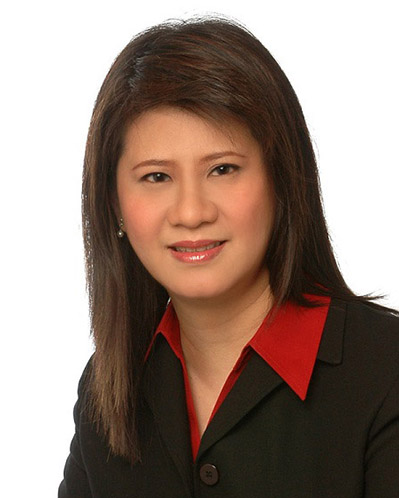
Dr. Li-ann Thio, BA Oxford (Hons); LLM (Harvard); PhD (Cambridge), Barrister (Gray’s Inn) is Provost Chair Professor at the Faculty of Law, National University of Singapore, where she teaches and writes on constitutional and administrative law, law and religion, public international law, and international and comparative human rights law with an Asian focus. She was a Nominated Member of the Singapore Parliament (11th Session, 2007-2009) and is currently Senior Advisor, Singapore Ministry of Foreign Affairs. She is presently the Chief Editor of the Singapore Journal of Legal Studies and formerly General Editor of the Asian Yearbook of International Law.
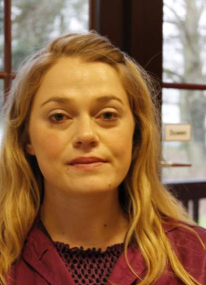
Georgia du Plessis is a Lecturer at the Department of Constitutional Law and Philosophy of Law, University of the Free State, South Africa, where she teaches Administrative Law and Interpretations of Statutes. She is currently registered as a PhD candidate in Law and Religious Freedom within Education at the University of Antwerp in Belgium. Her research is mainly focused on the philosophical aspects surrounding the right to religious freedom: religious institutions and the state, the right to freedom of expression and religious expression, defamation of religion, the position of religion within the public sphere, religious pluralism, liberalism, secularism, and Rawlsianism. Her international and national publications include 'Apartheid, Religious Pluralism and the Evolution of the Right to Religious Freedom in South Africa', Journal for Religious History in Australia (forthcoming); 'Freedom of Expression and Defamation of Religion: Mohammedi v SABC 3', South African Journal on Human Rights (2015); 'Religious Freedom, Reasonable Accommodation and the Protection of the Conscience of Learners in South African Public Schools', International Journal for Religious Freedom (2014); and 'Secularism as a Closed World Structure and its Effect on Religion Related School Choice', International Journal of Education Law and Policy (2014).
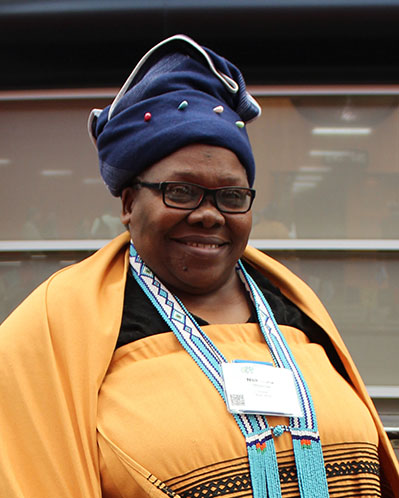
Dr. Nokuzola Mndende is the President of Icamagu Spirituality, a national organization for African Traditional Religion in South Africa (ATR), and is the Director of Icamagu Institute, an academic institute that develops African Traditional Religion clergy. She is the Deputy Chairperson for the Commission on Traditional Leadership Disputes and Claims, and also a Research Associate, Department of Theology, University of the Free State, South Africa. Dr. Mndende has been a lecturer of African Traditional Religion, feminist/womanist theology, and religion education at the University of Cape Town, and of African Traditional Religion at the University of South Africa (UNISA). She has also worked as a freelance presenter of the ATR at Umhlobo Wenene, the second largest radio station of the South African Broadcasting Corporation (SABC). Dr. Mndende is an expert in South African Customary law, and a consultant on all issues regarding the comparative analysis between the South African Constitution and customary law. She is an activist for the liberation of African Traditional Religion in a post–colonial and post–apartheid South Africa, and has published several books and papers on African Traditional Religion in a democratic state. She holds a PhD in Religious Studies from the University of Cape Town, South Africa.
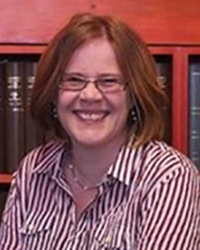
Helena van Coller is Associate Professor and course co-ordinator for Commercial Law 1 in the Faculty of Law at Rhodes University, South Africa. She also teaches Administrative Law to final year LLB-students. She joined the Faculty in July 2005. She obtained her LLB and LLM degrees (both with distinction) from the University of the Free State and an LLM (with distinction) from the University of Utrecht. She lectured part-time at the University of the Free State and supervised students from the Governance Programme, after obtaining a Master’s degree in Governance and Political Transformation from UFS in 2008. She was admitted as an advocate in 2004. She submitted her LLD (in Administrative Law) at the end of 2011 and graduated in 2012. She is an Advocate of the High Court of South Africa.
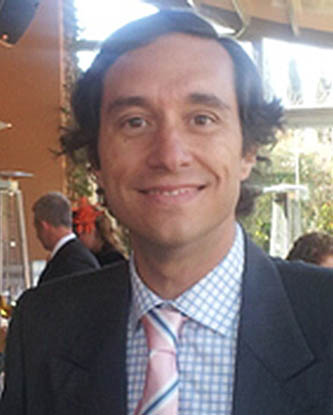
Santiago Cañamares Arribas is Professor of Law - Academic Secretary (Law and Religion Department), Complutense University of Madrid. He is a case note editor for the Oxford Journal of Law and Religion. He earned his PhD at Complutense University, Madrid. His interests include law and religion, religious marriages, and family and marriage law. His articles have appeared in Ecclesiastical Law Journal, Sri Lanka Journal of International Law, Religion-Staat-Gesellsclhaft, Revista General de Derecho Canónico y de Derecho Eclesiástico del Estado, and Anuario de Derecho Eclesiástico del Estado.
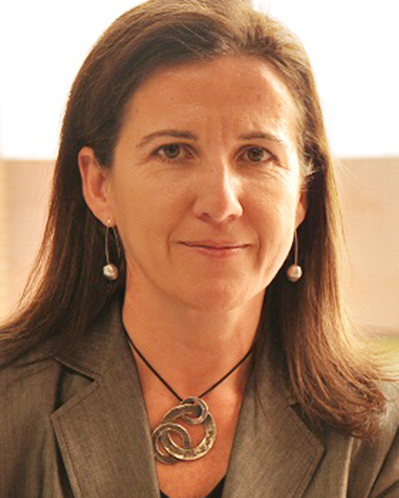
Montserrat Gas-Aixendri is Associate Professor of Law, Universitat Internacional de Catalunya (Barcelona, Spain). She is a Doctor in utroque iure (European Law Doctorate from Universidad Complutense de Madrid), and holds a Canon Law Doctorate from Università della Santa Croce, Rome. She is the Director of the Institute of Advanced Family Studies and the IsFamily Santander Chair, on family solidarity studies. Since 2004 she is a visiting professor at the University of the Holy Cross, and since 2014 she is a Research Fellow at Georgetown University. She has also lectured at the University of Illinois (USA), Universidad de Los Andes, and Universidad Católica de Valparaíso (Chile). She is the author of more than forty articles and three books, and is the editor of three books. Her research is characterized by a predominant interest in religious freedom from the perspective of the legal treatment of religious diversity in European societies and issues related to family and religion.
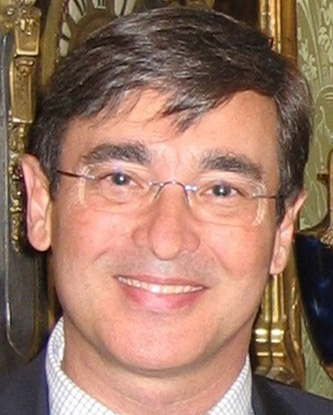
Javier Martínez-Torrón is Professor of Law and Director of the Department of Law and Religion, Complutense University of Madrid and Vice-President of the Section of Canon Law and Church-State Relations of the Spanish Royal Academy of Jurisprudence and Legislation. He is Honorary Foreign Member of the National Academy of Law and Social Sciences of Cordoba, Argentina; a former member of the Organization of Security and Co-operation in Europe/Office for Democratic Institutions and Human Rights Advisory Council for Freedom of Religion or Belief; and a member of the Spanish Advisory Commission for Religious Freedom within the Ministry of Justice. His research on law and religion issues is characterized by a predominant interest in international and comparative law. His writings, published in twenty-three countries and in twelve languages, include twenty books as author, co-author or editor, and more than one hundred essays in legal periodicals or collective volumes. His book Conflictos entre conciencia y ley. Las objeciones de conciencia (2nd ed., in collaboration with R. Navarro-Valls, 2012), contains possibly the most complete study published until now on the issue of conflicts between law and conscience.
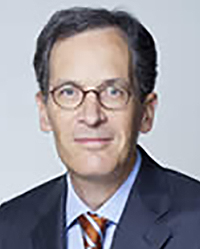
René Pahud de Mortanges is since 1992 Professor at the Faculty of Law at the University of Fribourg, Switzerland, where he teaches legal history, state-religion relationships, religious laws and constitutional law. He also serves as Director of the Institute of Law and Religion, Fribourg, was from 2007-2011 a member of the steering committee of the National Research Program, and serves as a counselor of state authorities and churches. In his approximately 100 publications he deals with a large variety of state-religion questions in Switzerland and in Europe and with the internal Catholic and Protestant law. He is editor of the collections Freiburger Veröffentlichungen zum Religionsrecht and Europäische Rechts und Regionalgeschichte. Publications include Religiöse Neutralität. Ein Rechtsprinzip in der multireligösen Gesellschaft (2008), Religionsrecht: Eine Einführung in das Jüdische, Christliche und Islamische Recht (with Petra Bleisch, David Bollag, and Christian Tappenbeck, 2010); Eglise Catholique et Etat en Suisse (with Libero Gerosa, 2010); Religion und Integration aus der Sicht des Rechts (2010), Die Kirchensteuern juristischer Personen in der Schweiz (with Raimund Süess and Christian R. Tappenbeck, 2012) and Mitgestaltungsmöglichkeiten für Laien in der katholischen Kirche. Rechtslage und pastorale Perspektiven (2013). He wrote the article on Switzerland for the Brill Encyclopedia of Law and Religion.
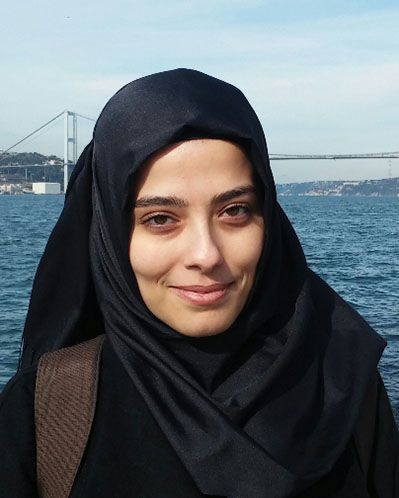
Hatice Kübra Şamiloğlu has an Environmental Engineering degree and is currently studying at the Alliance of Civilizations Institute in Fatih Sultan Mehmet Waqf University. Her research interests focus on cultural studies, ecocriticism, Christian-Muslim Environmental Theology, and sacred places.
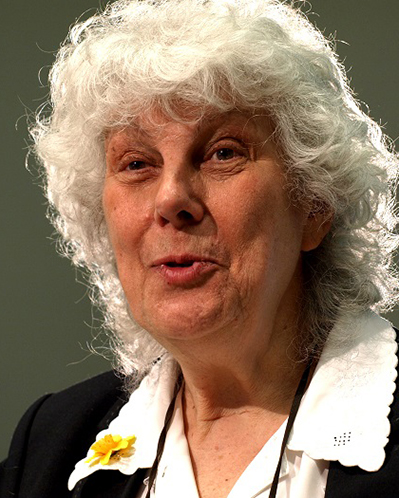
Eileen Barker, PhD, PhD h.c., FAcSS, FBA, OBE is Professor Emeritus of Sociology with Special Reference to the Study of Religion at the London School of Economics, University of London. Her main research interest is ‘cults’, ‘sects’ and new religious movements, and the social reactions to which they give rise. She has also investigated changes in the religious situation in post-communist countries and has been visiting China regularly over the past 10 years. She has more than 350 publications translated into 27 languages. She founded INFORM, an educational charity based at the LSE which provides information about minority religions. She is a Fellow of the British Academy and of the Academy of Social Scientists. She was the first non-American to be elected President of the Society for the Scientific Study of Religion. She is Honorary Life President of the International Study of Religion in Eastern and Central Europe Association, an Honorary Research Fellow of the Institute of Philosophy, Academy of Science, Kiev, and an Honorary Fellow of the London School of Economics. She received an Honorary Doctorate from the University of Copenhagen and was the recipient of the American Academy of Religion’s Martin E. Marty Award for the Public Understanding of Religion.
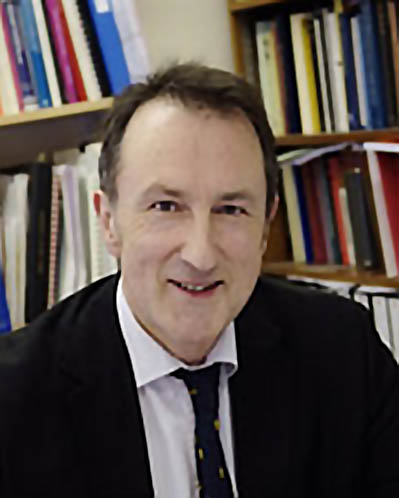
Norman Doe — LLM (Wales), MTh (Oxford), PhD (Cambridge), DCL (Lambeth), Barrister (Middle Temple) — is Director of Research at Cardiff Law School and founder / director the school's Centre for Law and Religion. With Centre colleagues, he established the Interfaith Legal Advisers Network and the Law and Religion Scholars Network (LARSN). He is an associate professor at the University of Paris and a member of the European Consortium for Church and State Research (President in 2010), has been visiting scholar at Bangor Law School, visiting fellow at Trinity College Oxford, visiting professor at KU Leuven, member of the Legal Advisory Commission of the Church of England, and deputy chancellor, Diocese of Manchester. A member of the Colloquium of Anglican and Roman Catholic Canon Lawyers, he was a consultant on canon law to the Primates of the Anglican Communion and member of the Lambeth Commission. He was docente invitato Pontifical University of St Thomas (Angelicum), Rome in 2009, and was appointed as Chancellor of the Diocese of Bangor in 2012. In 2013 he was the Oxford University Court Sermon Preacher and was appointed editor of the new Routledge Research Series in Law and Religion. Widely published, his book Law and Religion in Europe was included in the top 20 publications by the International Consortium for Law and Religion Studies.
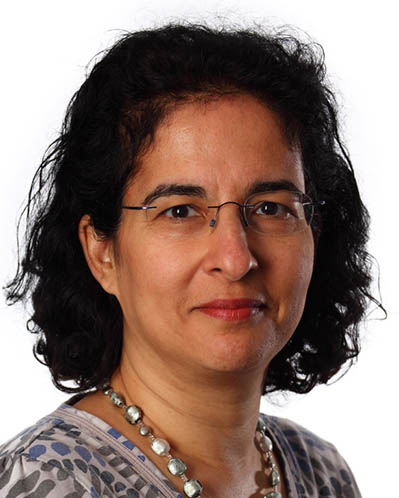
Dr. Nazila Ghanea, BA Keele, MA Leeds, PhD Keele, MA Oxon, is Associate Professor in International Human Rights Law, University of Oxford, and Member, OSCE Advisory Panel of Experts on Freedom of Religion or Belief. She was the founding editor of the international Journal of Religion and Human Rights and now serves on its Editorial Board as well as the Advisory Board of the Oxford Journal of Law and Religion. She has been a visiting academic at a number of institutions including Columbia and NYU, and previously taught at the University of London and Keele University, UK and in China. Dr. Ghanea's research spans freedom of religion or belief, the protection of identities in international human rights, and human rights in the Middle East. Her publications include nine books, five UN publications as well as a number of journal articles and reports. Nazila has acted as a human rights consultant/expert for a number of governments, the UN, UNESCO, OSCE, Commonwealth, Council of Europe and the EU. She has facilitated international human rights law training for a range of professional bodies around the world, lectured widely and carried out first hand human rights field research in a number of countries including Malaysia, Qatar, the United Arab Emirates, and the United Kingdom. She is a regular contributor to the media on human rights matters.
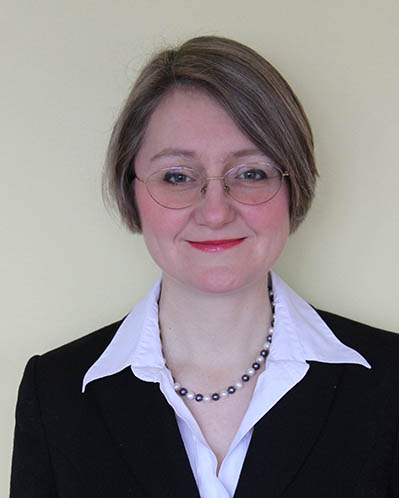
Jessica Giles is a law lecturer at the Open University Law School. She is Module Chair of a Level 2 LLB module, Public and Criminal Law, and deputy Module Chair on a Level 1 LLB module, Concepts and Perspectives, covering key national and international legal principles and traditions. She is also a team member on the EU law and research modules. Her area of research interest is the synthesis between law and religion and philosophical theology. She is Director of the Project on Interdisciplinary Law and Religion Studies at the Open University. She also carries out scholarship research in the field of online learning, having recently led a team to win the Stan Marsh prize for best paper at the Association of Law Teachers (ALT) Conference 2016.
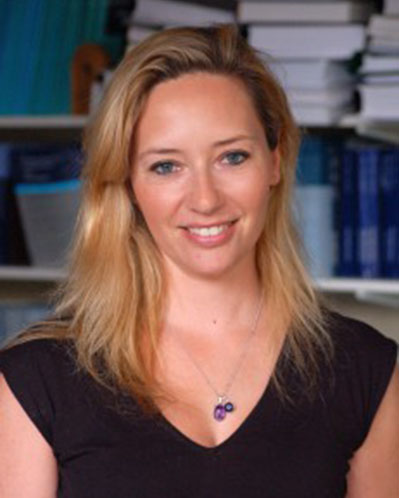
Kristin Hausler is the Dorset Senior Research Fellow in Public International Law at the British Institute of International and Comparative Law, where she leads a three-year project on the enforcement of the right to cultural heritage and a follow-up study on the protection of education in the MENA region. She is a member of the Cultural Heritage Committee of the International Law Association, for which she co-authored a report on the import and export of cultural objects. She also published a book chapter on cultural heritage in armed conflicts for the War Report and occasionally lectures on this topic. Kristin holds a Bachelor and Master of Law from the University of Fribourg (Switzerland) and an LLM from the University of British Columbia (Canada). She has worked in museums and studied modern and contemporary art at Christie's in New York. She worked for several years in Vancouver on the 'Journey Home', a field project developed with various Indigenous communities.
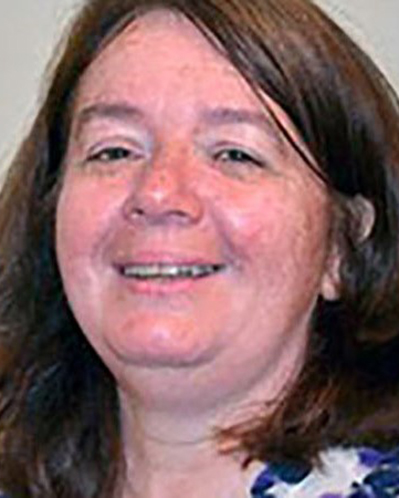
Sarah Hayes holds an LM (Distinction) in Canon Law from Cardiff University, and a BA (Hons) in Politics and Modern History from Manchester University. She is currently carrying out research into the impact of wider community use on the relationship between state and religions’ laws around religious buildings. She is based at Oxford Brookes University, where she received the School of Law Doctoral Studentship, 2015-2018, and is developing an academic specialism in property law and in law and religion. Prior to her research role, Sarah provided legal support to not-for-profit organizations developing physical, organizational, and human resources. She became a solicitor in 1990, was Principal of Sarah Hayes Solicitor for 15 years, and most recently worked as a consultant at Anthony Collins Solicitors and subsequently freelance. She is currently a non-practicing solicitor but remains on the roll. Sarah brings to academic research practical experience of the law, her specialist knowledge of religious communities’ structures and the wider economic, political, and legal contexts within which third sector organizations work. She is ordained as a priest within the Church of England.
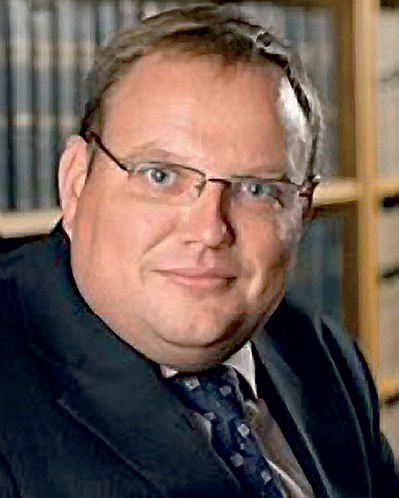
Mark Hill QC is a barrister specializing in ecclesiastical law and religious liberty. He has represented clients in the UK Supreme Court and the European Court of Human Rights. He is a recorder on the Midland Circuit (sitting in criminal, civil and family cases) and Deputy Judge of Upper Tribunal, Immigration and Asylum Chamber. He sits as judge in ecclesiastical courts of the Church of England and is Visiting Professor at Cardiff University’s Centre for Law and Religion (United Kingdom), at University of Pretoria in South Africa, and at the Dickson Poon School of Law at King’s College, London. Publications include Magna Carta, Religion and the Rule of Law, Religion and Law in the United Kingdom, Religion and Discrimination Law in the European Union, Ecclesiastical Law, Religious Liberty and Human Rights, and English Canon Law. He is a Consultant Editor of the Ecclesiastical Law Journal and a member of the Editorial Boards of the Oxford Journal of Law and Religion and the Revista General de Derecho Canónico y Derecho Eclesiástico del Estado. He is Ecumenical Fellow in Canon Law at the Venerable English College in Rome, and a former President of the European Consortium for Church and State Research. He is an accredited mediator, current co-chair, and a founder of BIMA, a charity which promotes faith-based mediation.
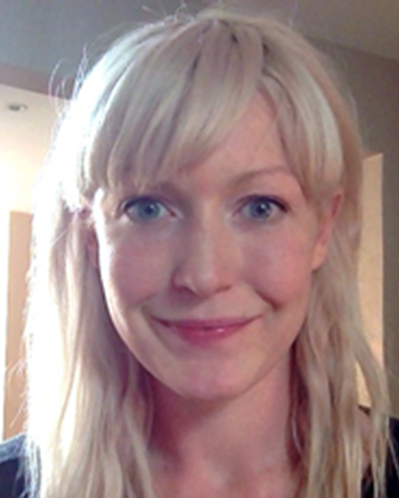
Harriet Hoffler is a Research Fellow in the Department of Theology and Religion, University of Birmingham, and a Research Fellow at the Commonwealth Initiative on the Freedom of Religion or Belief. She has an extensive background in multi-disciplinary human rights research. Most recently she worked as Lead Research Fellow at the University of Roehampton on the Is Britain Fairer review and the Human Rights Measurement Framework for the Equality and Human Rights Commission. Previously she worked as a Research Consultant to the Overseas Development Institute, to the University of Roehampton, and to the Humanitarian Department at Oxfam GB. She was a researcher on the Eurasia Europe/South Asia FP7 project with a particular emphasis on the application of international and regional human rights laws for religious minorities in South Asia and Europe. She held the positions of Adjunct Assistant Professor in International Law and Politics at the Richmond American University in London, and Visiting Lecturer in International Human Rights Law at the University of Roehampton and Brunel University. She has lectured on international human rights in Nepal, Italy, and London. Harriet has co-authored publications relating to human rights, indigenous and minority rights, with numerous credits in other books and articles in this field.
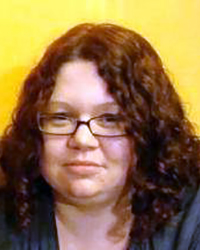
Laura Jose is Law Journals Publisher at Oxford University Press. Before assuming this role in 2014, she was Acting Assistant Publisher at OUP with charge of managing a list of 18 social science and arts journals. Prior to coming to OUP in 2002 Laura was Customer Services Advisor, Durham County Council, and Graduate Tutor at Durham University, where she received an MA in English Studies and a PhD in Medieval Literature.
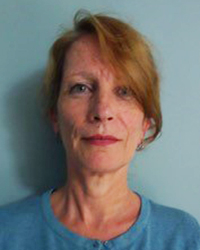
Alison Kirk is Senior Commissioning Editor at Routledge, Taylor & Francis Group. She commissions in Law, concentrating on research monographs, edited collections, and original reference books. She manages a number of active series and focuses particularly on the following areas: comparative legal systems; constitutional law; criminal law, criminal justice and criminology; law and religion; cultural diversity and law; jurisprudence and philosophy of law; law in Asia; legal ethics; legal history; medical law; migration and asylum law; election law. She was formerly Publisher for Law at Ashgate Publishing and has previously worked for Pearson Education, and Routledge (prior to becoming part of the Taylor & Francis Group). She can be contacted at: [email protected].
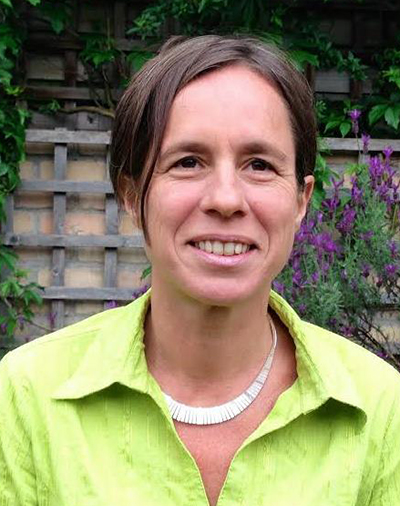
Cécile Laborde is a Professor of Political Theory at University College London. She has published extensively in the areas of republicanism and toleration, theories of law and the state, and global justice. Her last book is Critical Republicanism. The Hijab Controversy in Political Philosophy (Oxford University Press 2008). She is the Director of UCL’s Religion and Political Theory Centre. She is currently writing a book for Harvard University Press, entitled Freedom of Religion without Religion. Professor Laborde obtained a doctorate in Politics from Oxford University in 1996. She has held permanent posts in political theory at the University of Exeter and King's College, London. In 2007, she was elected Associate Professor to the École des Hautes Études en Sciences Sociales in Paris. She spent the 2010-11 academic year in Princeton, as a Fellow of the Institute for Advanced Study.
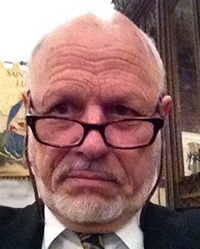
Dr. John Madeley is retired from teaching and administration (1997-2010) at the London School of Economics and Political Science, where he was Senior Lecturer in the Deparment of Government. He is still active at LSE as an associate, with continued principal research interests and expertise relating to church-state relations in Europe and the relationship between religion and politics. Dr. Madely's publications include the reader Religion and Politics, in the Ashgate series, International Library of Politics and Comparative Government (2002); Church and State in Contemporary Europe: the Chimera of Neutrality, co-edited with Z Enyedi (Cass 2003), and Religion, Politics and Law in the European Union, co-edited with Lucien Leustean (Routledge 2009). He has in addition authored scores of articles, book sections, and conference presentations.
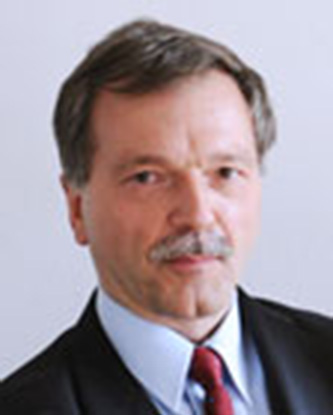
Werner Menski, MA (Kiel), PhD (London), is an Emeritus Professor of South Asian Laws and a Member of the Centre of Jaina Studies, SOAS, University of London. His research focuses on law, socio-legal and cultural studies, and religion and law. His publications include Comparative Law in a Global Context: The Legal Systems of Asia and Africa (Cambridge University Press 2006), Hindu Law: Beyond Tradition and Modernity (Oxford University Press 2003), Modern Indian Family Law (Curzon Press 2000), Public Interest in Litigation in Pakistan. with A Alam and M Raza (Platinum 2000), Muslim Family Law, with D Pearl (Sweet & Maxwell 1998), Migration, Disasporas and Legal Systems in Europe, ed. with Prakash Shah (Routledge-Cavendish 2006), Cancer of Extremism in Bangladesh. Proceedings of the European Human Rights Conference on Bangladesh: Extremism, Intolerance & Violence, ed. with Biswajit Chanda (Centre for Ethnic Minority Studies, SOAS and Bangladesh Conference Steering Committee 2005), and South Asians and The Dowry Problem, ed. (Trentham Books and School of Oriental & African Studies 1998). He has in addition authored some 125 book chapters and journal articles and a score of other papers and reports.
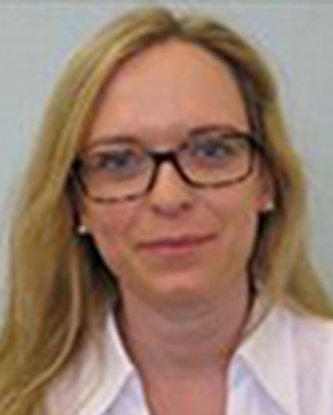
Megan Pearson joined the University of Winchester in 2014. She completed her PhD, which focused on the conflict between freedom of religion and sexual orientation equality rights, at the London School of Economics, where she was also a Graduate Teaching Assistant. She holds an LLM from King's College London, an MA from the University of Cambridge and has been called to the Bar. She teaches Legal Systems & Methods and Employment Law. Megan's main area of expertise are in Public Law, Employment Law, particularly Discrimination Law, and in Law and Religion. She has written article, book reviews and book chapters and is currently working on Proportionality, Equality Law and Religion (Routledge ICLARS Series on Law and Religion, forthcoming 2016).
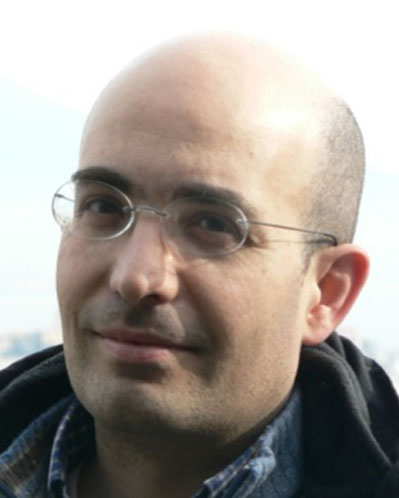
Fabio Petito is Senior Lecturer in International Relations at the University of Sussex. He received his PhD in International Relations from the London School of Economics, where he was also editor of the journal Millennium. Among his publications are Religion in International Relations (2003), Civilizational Dialogue and World Order (2009), and Towards a Postsecular International Politics (2014). He has been the principal investigator of the 'Bridging Voice' British Council-sponsored policy dialogue on 'FoRB and Foreign Policy: A transatlantic dialogue for a multilateral approach to religious freedom' (2014-16) whose main recommendations can be found in F Petito, D Philpott, S Ferrari, and J Birdsall, 'FoRB—Recognising our differences can be our strength: Enhancing transatlantic cooperation on promoting Freedom of Religion or Belief', Policy Brief (summer 2016). He is a member of the International Coordinating Committee of the World Public Forum 'Dialogue of Civilizations' and Scientific Co-ordinator of the Italian Ministry of Foreign Affairs–ISPI initiative on 'Religions and International Relations'.
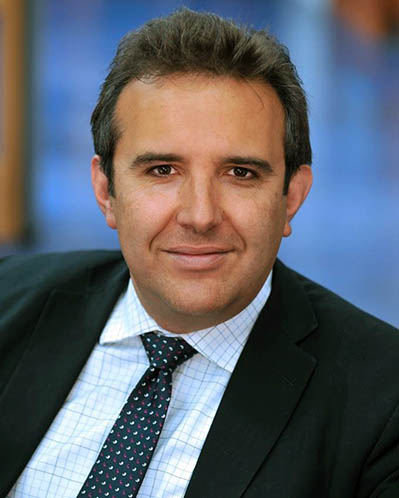
Dr. Peter Petkoff is a Law Lecturer at the Brunel Law School and Director of the Religion, Law, and International Relations Programme, a collaborative international research network at Regent's Park College, Oxford, in which capacity he brings together lawyers, theologians, philosophers, and social and political scientists, to develop innovative interdisciplinary strategies for studying law, religion, and international relations from legal and theological perspectives. He is Legal Consultant on Media Freedom and Freedom of Expression for the Representative on Freedom of the Media at the Organization for Security and Co-operation in Europe, a TEPSA consultant of the European Parliament, and a consultant for the All Party Parliamentary Group on International Freedom of Religion or Belief at the House of Lords. He is Managing Editor of the Oxford Journal of Law and Religion. He is writing a book for Oxford University Press on Holy Sites under International Law and has recently edited (together with Malcolm Evans and Julian Rivers) the volume The Changing Nature of Religious Rights under International Law. His work in the field of religion and public life has had impacts on policy makers and on the ways religious communities articulate their public self-perception and their attitude to law, civic values, secularism, and their own internal normative systems.
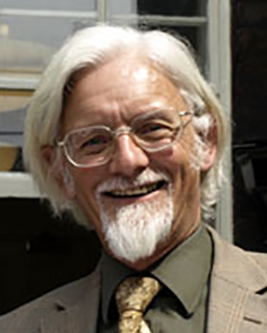
David Pollock (MA, Oxford, 1964) is a board member and past chair of the British Humanist Association and of the Rationalist Association, publishers of New Humanist magazine. He represents the International Humanist and Ethical Union at the Council of Europe. He was President of the European Humanist Federation (2006-2012) and chaired the Advisory Board (of NGOs) to the European Parliament Platform for Secularism in Politics. He takes a special interest in public policy on the place of religion and belief in society in a context of human rights, equality and non-discrimination. His writings on the subject are at www.thinkingabouthumanism.org. He has spoken at EU, European Parliament, Council of Europe and OSCE conferences and has given oral evidence to committees of both the UK Parliament and the Parliamentary Assembly of the Council of Europe. He was given the Distinguished Service to Humanism Award at the 2011 World Humanist Congress in Oslo.
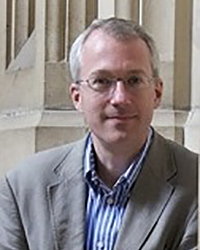
Julian Rivers, BA, LLM, Miur, MA (Cantab), PhD, was appointed to the University of Bristol in 1993, becoming Professor of Jurisprudence in 2007. He has taught a range of subjects in European and domestic constitutional and administrative law, human rights law and jurisprudence. His research interests lie mainly in the area of legal and constitutional theory, with particular interests in legal reasoning and the relationship between law and religion, in which areas he has published widely. He is best known for his translation (from German) of Robert Alexy’s Theory of Constitutional Rights, which appeared with Oxford University Press in 2002, along with several articles and essays extending and applying the Theory in the British context. In 2010 he published The Law of Organized Religions: between Establishment and Secularism, also with Oxford University Press, which was subsequently shortlisted for the 2011 triennial Inner Temple book prize. He is a member of the Editorial Advisory Board of the Ecclesiastical Law Journal, and an editor-in-chief of the Oxford Journal of Law and Religion.
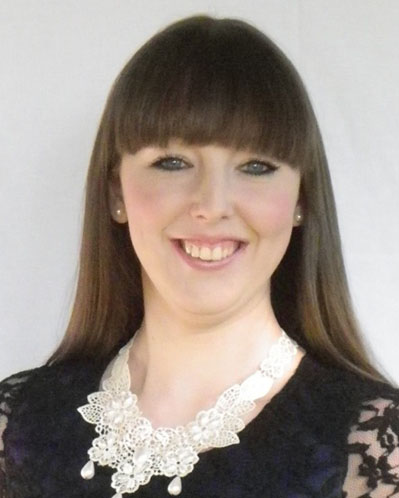
Caroline is a PhD Candidate in Law and a Teacher at the University of Bristol. Her particular research interest is Article 9 of the European Convention on Human Rights. She is part of the Centre for the Study of Law and Religion and the Religious Rights in International Law Research Theme at the University of Bristol and runs a blog (www.thinkrights.blogspot.co.uk) and twitter page (www.twitter.com/thinkrights) dedicated to issues relating to freedom of religion and belief. She is a Research Associate at the Centre for Law and Religion at Cardiff University where she is an active member of the Law and Religion Scholars Network, and is currently co-editing the Handbook on the Interdisciplinary Study of Law and Religion (Edward Elgar Press) with three other members of the Centre. In May this year, along with Dr Russell Sandberg, Caroline organised the Festival for Law and Religion at Cardiff University. Caroline is also a Magistrate (JP) and member of the Magistrates' Association. She holds a first class honours BA in Theology and an MA from the University of Oxford. She also holds an LLM (distinction) in International Human Rights and Humanitarian Law.
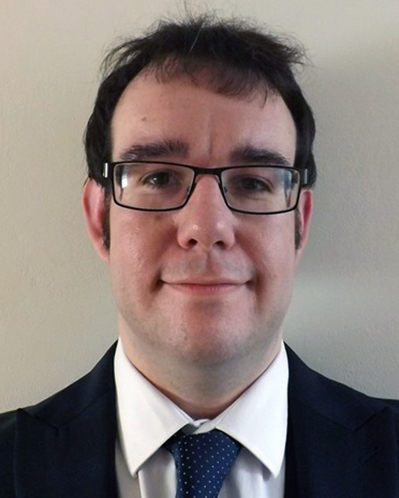
Dr. Russell Sandberg is Head of Law and Reader in Law at the School of Law and Politics at Cardiff University where he specializes in Law and Religion and Legal History. Author or co-author of over 60 articles and book chapters addressed to legal, sociological and general readerships, his titles include Law and Religion (Cambridge University Press 2011) and Religion, Law and Society (Cambridge University Press 2014). He is co-editor of Law and Religion: New Horizons (Peeters 2010), editor of Religion and Legal Pluralism (Ashgate 2015) and co-editor of The Confluence of Law and Religion (Cambridge University Press 2016). Researching at Cardiff's Centre for Law and Religion, he convenes the Law and Religion Scholars Network (LARSN) and serves as the Managing Editor of the ICLARS Series on Law and Religion, published by Routledge.
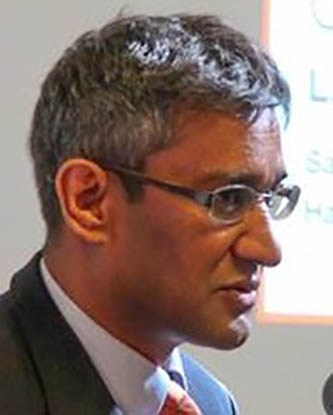
Dr. Prakash Shah is Reader in Culture and Law and Director of GLOCUL: Centre for Culture and Law at Queen Mary, University of London. He specializes in legal pluralism, religion and law, ethnic minorities and diasporas in law, immigration, refugee and nationality law, and comparative law with special reference to South Asia. He has published widely and lectured internationally in these fields. Dr Shah was Lecturer at SOAS, University of London from 1993, and Lecturer at the University of Kent at Canterbury from August 2000. He joined Queen Mary, University of London in 2002. His recent publications include Against Caste in British Law: A Critical Perspective on the Caste Discrimination Provision in the Equality Act 2010 (2015) and Family, Religion and Law: Cultural Encounters in Europe (2014, co-editor). He is also editor of the Routledge series on Cultural Diversity and Law.
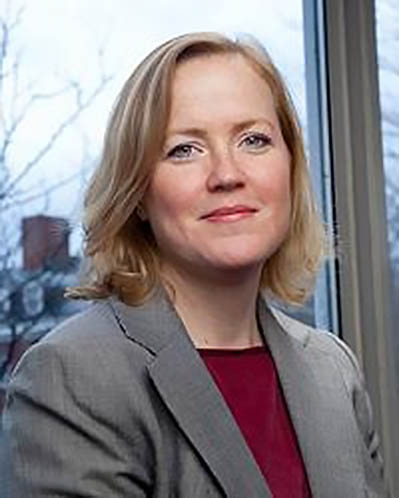
Monica Duffy Toft is a professor of government and public policy at Oxford University’s Blavatnik School of Government. She previously was an associate professor of public policy at Harvard’s John F. Kennedy School of Government and director of the Initiative on Religion in International Affairs, and the assistant director of the John M. Olin Institute for Strategic Studies. Her research interests include international relations, religion, nationalism and ethnic conflict, civil and interstate wars, the relationship between demography and national security, and military and strategic planning. She was an associate scholar with the Berkley Center’s Religious Freedom Project. She holds a PhD and an MA from the University of Chicago and a BA in Political Science and Slavic Languages and Literatures from the University of California, Santa Barbara, summa cum laude.
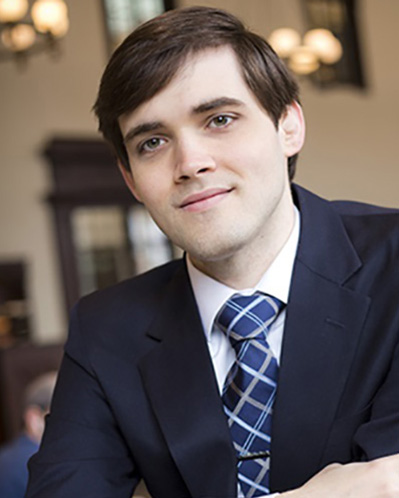
Kurtis Anderson is a JD candidate (2017) at Emory University’s School of Law. His growing areas of expertise include law and religion and legal history, specifically the intersection between the two. He completed his undergraduate studies at Emory University’s College of Arts and Sciences, majoring in history and political science, specializing in intellectual history and political theory. He received a master’s degree in history from Emory University’s Laney Graduate School, completing a thesis on the divine right of kings in early modern England titled "Sir Robert Filmer’s Patriarcha: Royalist Propaganda".
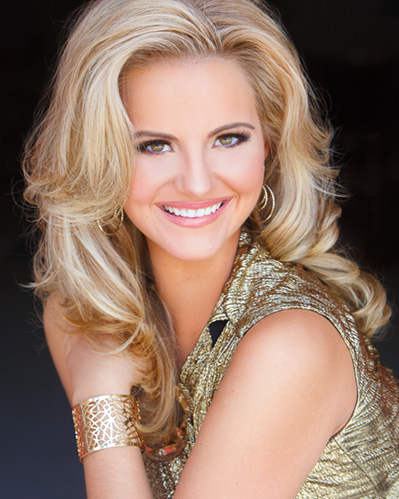
Ashley Barnett is a recent Juris Doctor graduate of Emory Law School. She is currently pursuing a Master of Law degree with a concentration in Law and Religion at Emory and plans to further her education afterwards by obtaining a Doctor of Juridical Science degree. She has actively researched and participated in a number of domestic and international law and religion summits and moot courts, and contributed to several Supreme Court amicus briefs and circuit cases. Ashley is specifically interested in continuing her research on the interaction between religious culture and the law.
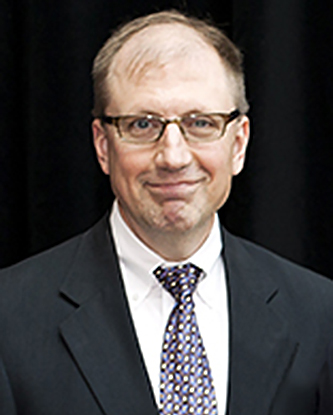
Tom Berg is the James L. Oberstar Professor of Law and Public Policy at the University of St. Thomas School of Law (Minnesota), where he teaches and writes on religious liberty, constitutional law, and intellectual property and supervises the religious liberty appellate clinic. He is the author of four books (including a leading casebook), more than 100 scholarly and popular articles, and many briefs in the U.S. Supreme Court and other courts on religious liberty issues. He also writes on issues concerning intellectual property, social justice, and human development. He has been co-director of St. Thomas’s Terrence J. Murphy Institute for Catholic Thought, Law, and Public Policy; he serves on the board of the Democrats for Life of America; and he contributes to Mirror of Justice, the SCOTUSblog, and other weblogs. He has degrees from the University of Chicago, in both law and religious studies; from Oxford University, as a Rhodes Scholar; and from Northwestern University. Before entering law teaching, he practiced law at Mayer Brown & Platt in Chicago and clerked for the Hon. Alvin B. Rubin on the U.S. Court of Appeals for the Fifth Circuit.
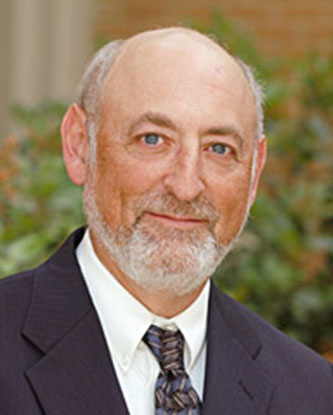
Alan Brownstein, professor of law emeritus at the University of California Davis School of Law, is a nationally recognized Constitutional Law scholar and teacher. A graduate of Antioch College and Harvard Law School (where he served as a Case Editor of the Harvard Law Review), Brownstein was an attorney in general litigation and corporate practice with the law firm of Tuttle & Taylor in Los Angeles before joining the UC Davis law faculty. From 1977-78, he clerked for the Honorable Frank M. Coffin, Chief Judge of the U.S. Court of Appeals for the 1st Circuit in Portland, Maine. While the primary focus of his scholarship relates to church-state issues and free exercise and establishment clause doctrine, he has also written extensively on freedom of speech, privacy and autonomy rights, and other constitutional law subjects. Professor Brownstein is a frequent invited lecturer at academic conferences and law related programs offered by civic, legal, religious, and educational groups. Before retiring, Professor Brownstein held the Boochever and Bird Chair for the Study and Teaching of Freedom and Equality.
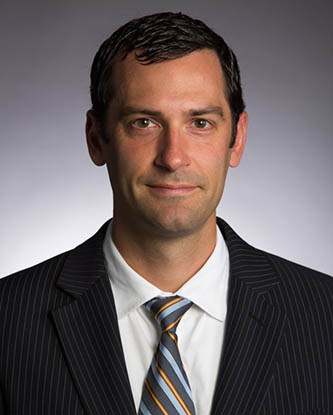
Zachary R. Calo is Research Scholar in Law and Religion at Valparaiso University and Full Professor at Hamad bin Khalifa University Law School in Doha, an initiative of the Qatar Foundation and Northwestern University to offer the first JD in the MENA region. He has previously taught at Valparaiso University Law School, Notre Dame Law School, DePaul University College of Law, Hangdong International Law School in South Korea, and has been a visiting fellow at the Brookings Institution, the Pew Forum on Religion and Public Life, and the Institute for Humane Studies. He previously practiced banking law in Washington, DC. He holds a JD from the University of Virginia School of Law, a BA and an MA in History from The Johns Hopkins University, a PhD in History from the University of Pennsylvania, and is a PhD candidate in Religious Studies at the University of Virginia. He is co-editor of the forthcoming Agape, Justice, and Law (Cambridge University Press).
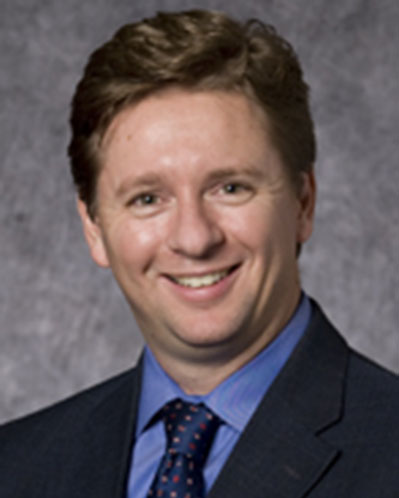
Peter G. Danchin is Professor of Law and Director of the International and Comparative Law Program at the University of Maryland School of Law. He was a Senior Research Fellow in Law at the Center of Theological Inquiry in Princeton, where he co-lead the Inquiry on Law and Religious Freedom, a member of the Luce-funded interdisciplinary research project Politics of Religious Freedom: Contested Norms and Local Practices, and an Andrew W. Mellon Visiting Fellow in Law and Religious Studies at the University of Cape Town. His scholarship focuses on competing conceptions of the right to religious freedom in international and comparative law and legal theory. Recent publications include Politics of Religious Freedom co-edited with Winnifred Fallers Sullivan, Elizabeth Shakman Hurd and Saba Mahmood (Chicago University Press 2015) and a special issue of South Atlantic Quarterly co-edited with Saba Mahmood on Politics of Religious Freedom: Contested Genealogies (Duke University Press 2014). He holds a BA and an LLB with first class honors from the University of Melbourne, where he was Editor-in-Chief of the Melbourne University Law Review and President of the Law Students' Society, and an LLM and JSD from Columbia Law School, where he was a Bretzfelder International Law Fellow.
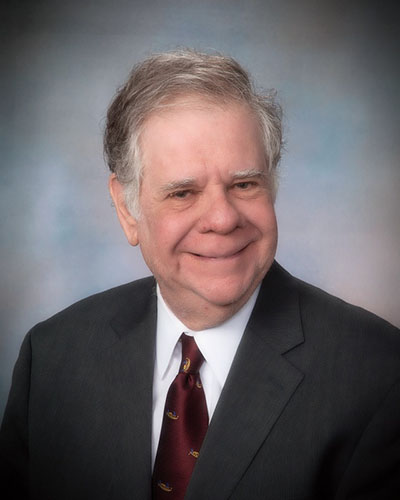
Perry Dane is a Professor of Law at the Rutgers Law School. He received his BA summa cum laude from Yale College and his JD from Yale Law School, where he was Note Editor of the Yale Law Journal and received the Israel H. Peres Prize for the best student contribution to the Journal. After law school, he clerked for Judge David Bazelon of the US Court of Appeals and Justice William Brennan of the US Supreme Court and then served for nine years on the Yale Law School faculty. His research and teaching interests include religion and the law, conflict of laws, constitutional law, jurisdiction, American Indian law, the law of charities, the jurisprudence of Jewish law, legal theory, legal pluralism, comparative constitutionalism, same-sex marriage, American Indian Law, and the Canadian legal system. Professor Dane is Secretary of the Council on Religion and Law (CORAL). He has been a fellow at the Rutgers Center for the Critical Analysis of Contemporary Culture and a full-time resident fellow at the NYU Law School’s Tikvah Center for Law and Jewish Civilization. In 2011, Professor Dane received the Inaugural Dean’s Award for Scholarly Excellence at the Rutgers School of Law – Camden
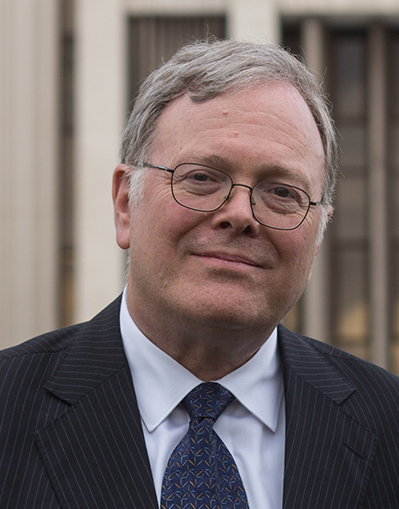
Cole Durham is President, International Consortium for Law and Religion Studies (ICLARS), and Susa Young Gates University Professor of Law and Founding Director of the International Center for Law and Religion Studies (ICLRS) at the J. Reuben Clark Law School of Brigham Young University. He is a graduate of Harvard College and Harvard Law School, where he was a Note Editor of the Harvard Law Review and Managing Editor of the Harvard International Law Journal. He has been heavily involved in comparative law scholarship, with a special emphasis on comparative constitutional law. He is a founding Editor-in-Chief of the Oxford Journal of Law and Religion. He served as the Secretary of the American Society of Comparative Law from 1989 to 1994. He is an Associate Member of the International Academy of Comparative Law in Paris—the premier academic organization at the global level in comparative law. He served as a General Rapporteur for the topic 'Religion and the Secular State' at the 18th Congress of the International Academy of Comparative Law, held in July 2010. He served in earlier years as Chair both of the Comparative Law Section and the Law and Religion Section of the American Association of Law Schools.
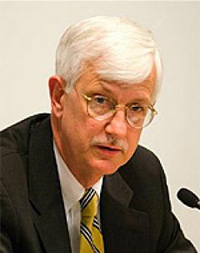
Thomas F. Farr is Director of the Religious Freedom Project at the Berkley Center for Religion, Peace, and World Affairs at Georgetown University and Founder-President of the newly launched Religious Freedom Institutue. He is Associate Professor of the Practice of Religion and World Affairs at Georgetown’s Edmund A. Walsh School of Foreign Service. He served in the US Army and Foreign Service for 28 years and was the founding Director of the US State Department's Office of International Religious Freedom. A leading authority on international religious freedom, Dr. Farr has published widely, including 'Diplomacy in an Age of Faith' in Foreign Affairs (March/April 2008). The arguments he made in World of Faith and Freedom: Why International Religious Liberty is Vital to American National Security (Oxford University Press 2008) shaped legislation introduced in the US Congress in 2016. Farr received his BA in history from Mercer University, and his PhD in modern British and European history from the University of North Carolina.
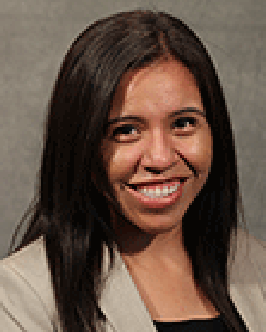
Lauren M. Flores is assisting with logistics for this Oxford event. She is a JD/MPA candidate at the J. Reuben Clark Law School, Brigham Young University, where she is a member of the Student Management Board of the International Center for Law and Religion Studies (ICLRS). She received a bachelor's degree in Communications from BYU, with minors in Editing, Spanish, and International Development. As in ICLRS Student Fellow in 2015 she completed an externship in Buenos Aires, Argentina. She was a research and writing contributor (Eritrea) to the Brill Encyclopedia of Law and Religion (2016).
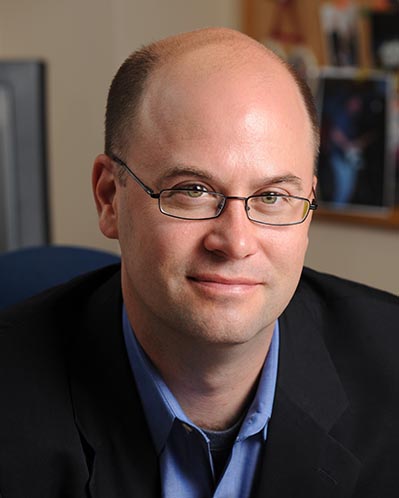
Richard W. Garnett is the Paul J. Schierl / Fort Howard Corporation Professor of Law and Concurrent Professor of Political Science at the University of Notre Dame Law School. He is the founding director of the Law School’s new Program on Church, State, and Society, an interdisciplinary project that focuses on the role of religious institutions, communities, and authorities in the social order. He received his BA in philosophy summa cum laude from Duke University in 1990 and his JD from Yale Law School in 1995. He served as a law clerk to Chief Justice of the United States, William H. Rehnquist, and to then-Chief Judge Richard S. Arnold. Professor Garnett teaches and writes about the freedoms of speech, association, and religion, and also about constitutional law more generally. He is a leading authority on questions and debates regarding the role of religious believers and beliefs in politics and society. He has published widely on these matters, and is the author of dozens of law-review articles and book chapters. He is regularly invited to share analysis and commentary in national print and broadcast media, and he contributes to several law-related blogs, including Mirror of Justice and PrawfsBlawg.
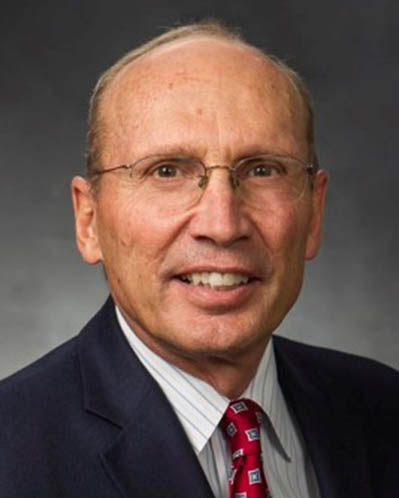
Professor Fred Gedicks, Guy Anderson Chair, J. Reuben Clark Law School, Brigham Young University, writes on law and religion, constitutional law, and constitutional interpretation, including two books, The Rhetoric of Church and State: A Critical Analysis of Religion Clause Jurisprudence (1995), and Choosing the Dream: The Future of Religion in American Public Life (1991) (with Roger Hendrix). His current research focuses on legal issues and problems posed by federal and state religious accommodation statutes after the U.S. Supreme Court's decision in Burwell v. Hobby Lobby Stores, Inc. (2014). Recent publications include "Is Hobby Lobby Worse for Religious Liberty Than Smith?", St. Thomas Journal of Law & Public Policy (2015) (with Andrew Koppelman); "One Cheer for Hobby Lobby: Improbable Alternatives, Truly Strict Scrutiny, and Third-Party Employee Burdens," 38 Harvard Journal of Law & Gender 153 (2015); and "RFRA Exemptions from the Contraception Mandate: An Unconstitutional Accommodation of Religion," 49 Harvard Civil Rights-Civil Liberties Law Review 343 (2014 - with Rebecca Van Tassell). He is principal author and counsel of record on a Supreme Court amicus brief filed for himself and twenty other church-state scholars in Hobby Lobby arguing that for-profit employer exemptions from the contraception mandate violate the Establishment Clause.
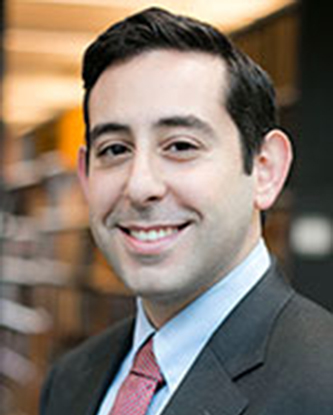
Dr. Mark Goldfeder, Esq. is Senior Lecturer at Emory Law School, the Spruill Family Senior Fellow at the Center for the Study of Law and Religion, and Director of Law and Religion Student Programs at Emory. He is also an ordained orthodox rabbi and rabbinic court judge, and serves as an attorney of counsel to the American Center for Law and Justice. Dr. Goldfeder is the author of multiple articles and paper presentations on Jewish Law and marriage, polygamy, and Israeli law. He has presented at conferences and universities throughout North America, Europe, and Israel. In addition to his teaching and research, Goldfeder is responsible for leading the Law and Religion Student Program. In this capacity he has created a law and religion internship, a law and religion externship, a law and religion society, and a law and religion blog. He earned the following degrees: SJD, LLM, Emory University School of Law; JD, New York University School of Law; BA, Yeshiva University.
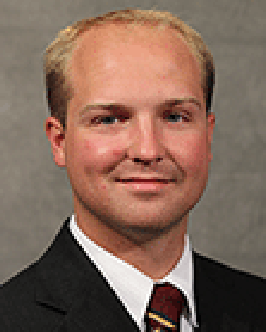
Michael Goodrich is assisting with logistics for this Oxford event. He is a JD candidate at the J. Reuben Clark Law School at Brigham Young University, where he is a member of the International Center for Law and Religion Studies' Student Management Board. He concentrates his legal studies on constitutional law with an emphasis in civil rights and First Amendment issues. As a Student Fellow for the Center in summer 2014, Michael worked in Auckland, New Zealand. He was a research and writing contributor (Liechtenstein, OSCE) to the Brill Encyclopedia of Law and Religion (2016).
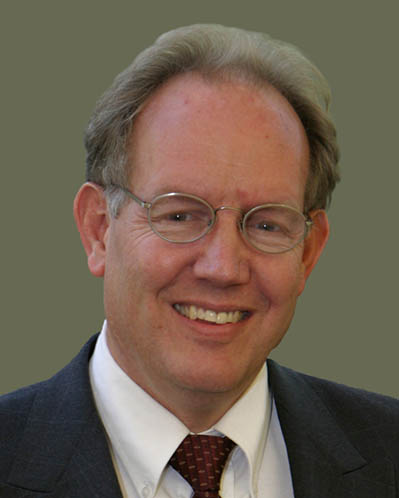
A professor in the Brigham Young University Department of Political Science, David Kirkham is academic director of Brigham Young University Limited (London Centre). He was for eight years before that Senior Fellow for Comparative Law and International Policy and Regional Advisor for Europe for the International Center for Law and Religion Studies. He came to the Center from the George C. Marshall European Center for Security Studies in Garmisch-Partenkirchen, Germany, where he served as Associate Dean and Professor of International Politics and Democratic Studies. He was Associate Professor of History, Director of International History, and Director of International Plans and Programs at the US Air Force Academy. He conducted international negotiations and diplomatic activities for several years for the US Government and United Nations, including as Senior Humanitarian Affairs Officer at the UN Office for the Coordination of Humanitarian Affairs in Geneva (with duties primarily in Africa). He has officially represented the US and the UN in more than 40 nations on six continents. He holds BA, MFA, and JD degrees from Brigham Young University and a PhD from George Washington University.
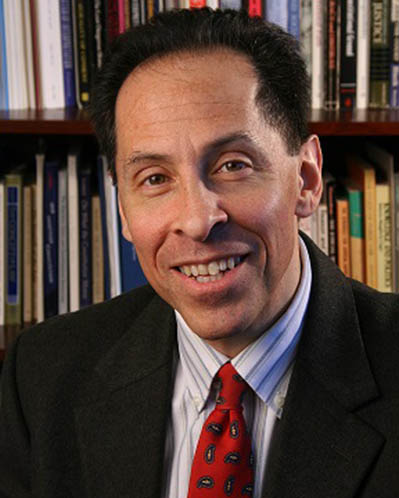
Andrew Koppelman is John Paul Stevens Professor of Law and Professor of Political Science at Northwestern University, where he received the 2015 Walder Award for Research Excellence. He holds a joint appointment at Weinberg College of Arts and Sciences, Department of Political Science. Koppelman received an AB from University of Chicago, and an MA, a JD, and a PhD from Yale University. His scholarship focuses on issues at the intersection of law and political philosophy. He has taught at UT Austin, Princeton, and Harvard. His latest books are The Tough Luck Constitution and the Assault on Health Care Reform (Oxford University Press, 2013) and Defending American Religious Neutrality (Harvard University Press, 2013). He has also published more than 100 articles in books and scholarly journals. He is an occasional contributor to Salon.com and the Balkinization blog.
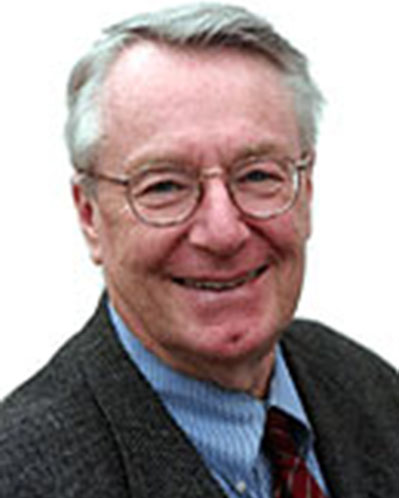
David Little is Retired Professor of the Practice in Religion, Ethnicity, and International Conflict at Harvard Divinity School, and was an Associate at Harvard's Weatherhead Center for International Affairs. He is a Fellow at the Berkley Center for Religion, Peace and World Affairs at Georgetown University. He was Senior Scholar in Religion, Ethics and Human Rights at the United States Institute of Peace in Washington, DC. Before that, he taught at the University of Virginia and Yale Divinity School and was a member of the State Department Committee on Religious Freedom Abroad. He is co-author with Scott W. Hibbard of Islamic Activism and U.S. Foreign Policy, and also author of publications on Ukraine, Sri Lanka, and Tibet (with Hibbard) in the USIP series on religion, nationalism, and intolerance. In 2007 he published two edited volumes: Peacemakers in Action: Profiles of Religion in Conflict Resolution, and Religion and Nationalism in Iraq: A Comparative Perspective with (Donald K. Swearer). He has authored a number of articles on religion and human rights, the history of rights and constitutionalism, and religion and peace. Cambridge University Press published a book of his writings, Essays on Religion and Human Rights: Ground To Stand On, and a book of responses to his work by colleagues and former students: Religion and Public Policy: Human Rights, Conflict, and Ethics, edited by Sumner Twiss, Marian Simion & Rodney Petersen.
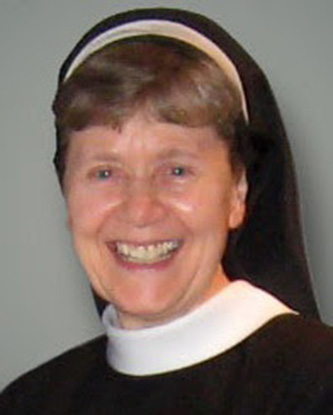
Sister Renée Mirkes, OSF, PhD, is a member of the Franciscan Sisters of Christian Charity, Manitowoc, WI. She serves as director of the Center for NaProEthics (the ethics division of the Pope Paul VI Institute, Omaha, NE) and was editor of its ethics publication, The NaProEthics Forum, from 1996 to 2002. She received her masters degree in moral theology from the University of St. Thomas, Houston, Texas, and her doctorate in theological ethics from Marquette University, Milwaukee, Wisconsin. In her current position, she focuses on procreative and birth ethics through consultations, publications, and public speaking. To these commitments Sister Renée brings experience in clinical ethics as well as broad experience in bioethics. She has published articles in The Journal of Philosophy and Medicine, Ethics & Medics, New Blackfriars, The Thomist, Linacre Quarterly, The American Catholic Philosophical Quarterly, Catholic Answer, Our Sunday Visitor, The NaProEthics Forum, National Catholic Bioethics Center Quarterly, Ethics and Medicine, Catholic World Report, and The Catholic Response.
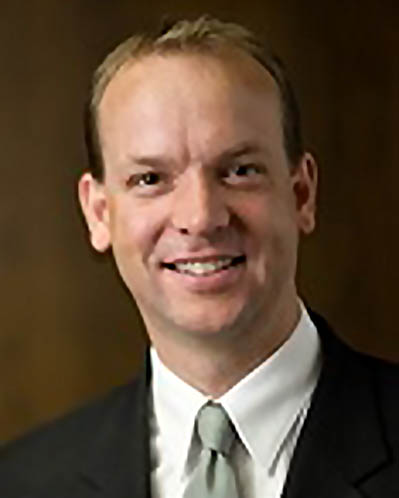
David Moore, Associate Dean of Academic Affairs and Wayne M. and Connie C. Hancock Professor of Law, J. Reuben Clark Law School, Brigham Young University, is a scholar of U.S. foreign relations law, international law, international development, and international human rights. He has been published in the Harvard, Columbia, Virginia, and Northwestern Law Reviews, among others, and has taught Civil Procedure, International Law, U.S. Foreign Relations Law, International Human Rights, Legal Scholarship, and a Plenary Powers Colloquium. He has been a visiting professor at the George Washington University Law School, was an assistant and then associate professor at the University of Kentucky College of Law, and was an Olin Fellow at the University of Chicago Law School. He clerked for Judge Samuel A. Alito, Jr. on the U.S. Court of Appeals for the Third Circuit and later for Justice Alito on the U.S. Supreme Court. He was an Honor Program trial attorney at the U.S. Department of Justice. Professor Moore graduated summa cum laude from Brigham Young University Law School, first in his class, where he was Editor-in-Chief of the Law Review.
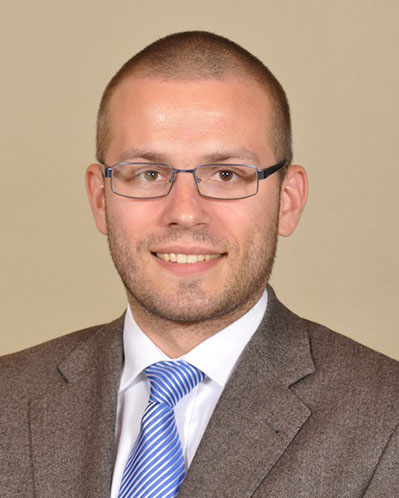
JUDr. Patrik Rako studied law (degrees: 2010 Bc; 2012 Mgr, 2013 JUDr;) and criminal law (2015 PhD) in Slovakia. From 2012 to 2015 he taught at Paneuropean University, Slovakia. He studied ADR, Investment Law and China Foreign Trade earning an LLM at City University of Hong Kong. He also studied advanced legal studies earning an LLM at Emory University School of Law. During his doctoral studies, Rako published almost 30 conference papers in various themes in criminal, constitutional, and fundamental rights law.
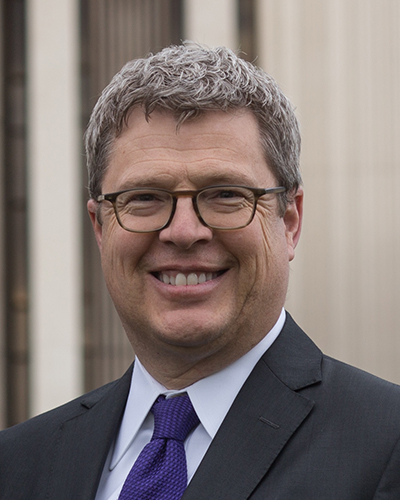
Brett G. Scharffs is Francis R. Kirkham Professor of Law and Director of the International Center for Law and Religion Studies at Brigham Young University Law School. He received a BSBA in international business and an MA in philosophy at Georgetown University and, as a Rhodes Scholar, earned a BPhil in philosophy at Oxford. He received his JD from Yale Law School, where he was senior editor of the Yale Law Journal. He is a recurring visiting professor at Central European University in Budapest and at the University of Adelaide Law School. He has for several years helped organize certificate training programs in religion and the rule of law in China and in Vietnam and has taught and helped organize programs at several Indonesian universities on sharia and human rights. Author of more than 100 articles and book chapters, he has made more than 300 scholarly presentations in 30 countries. His casebook, Law and Religion: National, International and Comparative Perspectives (with Cole Durham, 2nd English edition forthcoming 2017), has been translated into Chinese and Vietnamese, with Turkish, Burmese, and Arabic in process. He is author with Elizabeth Clark of Religion and Law in the USA, a 2016 contribution to Wolters Kluwer’s International Encyclopaedia of Laws.
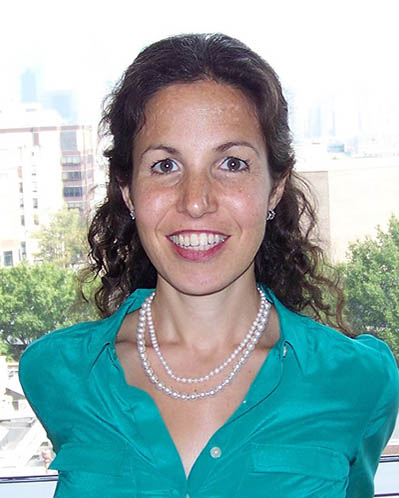
Amy J. Sepinwall is the James G. Campbell Jr. Term Assistant Professor of Legal Studies and Business Ethics at The Wharton School, University of Pennsylvania. Professor Sepinwall's research addresses two sets of issues — first, questions of responsibility in institutional settings, including the corporation, the university, the military and the nation-state; and, second, questions of the appropriate scope and content of corporate constitutional rights. Her work has been published in the University of Chicago Law Review, Hastings Law Journal, University of Minnesota Law Review, and the Journal of Corporation Law. Professor Sepinwall received her BA in Philosophy and English, and her MA in Bioethics, from McGill University, her JD from Yale Law School, and her PhD in Philosophy from Georgetown.
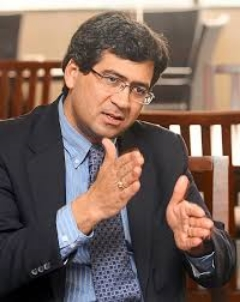
Timothy Samuel Shah is associate director of the Religious Freedom Project at the Berkley Center for Religion, Peace, and World Affairs and Associate Professor of the Practice of Religion and Global Politics in the Government Department at Georgetown University. He holds a PhD from Harvard and is a political scientist specializing in the relationship between religion and political freedom in theory, history, and contemporary practice. Shah is author, with Monica Duffy Toft and Daniel Philpott, of God’s Century: Resurgent Religion and Global Politics (W.W. Norton 2011), and is editor of an Oxford University Press series on Evangelical Christianity and Democracy in the Global South, which has so far generated three volumes. His articles on religion and global politics have appeared in Foreign Affairs, Foreign Policy, the Journal of Democracy, the Review of Politics, and elsewhere. Professor Shah is Senior Advisor to the newly launched Religious Freedom Institute (RFI) at Georgetown, and he and his wife, Rebecca, who have extensive experience in India, will establish an RFI office there.
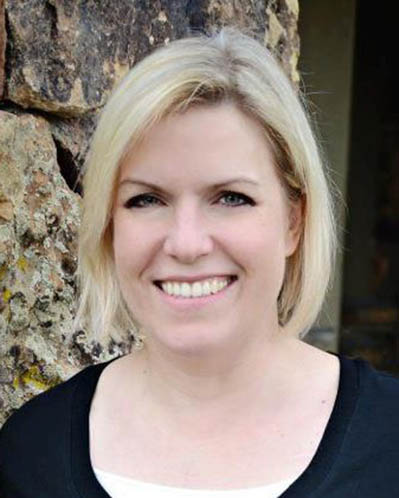
Blythe Shupe is the Media Coordinator for this Oxford event. She can be reached at [email protected]. Blythe joined the International Center for Law and Religion Studies in September 2015 as a Communications Specialist. She spent the previous ten years as an account manager in the world of pre-employment screening. In this position, she worked closely with Human Resources, Compliance Departments, and Security Departments of large companies setting up and monitoring background screening programs for new hires to ensure the client was hiring the best possible candidate while operating within federal, state, and local laws. She specialized in the complicated screening practices surrounding healthcare, financial firms and aviation. Prior to that, she spent nine years in various roles at WordPerfect Corporation. Blythe earned her Bachelor's degree in Comparative Literature from Brigham Young University.
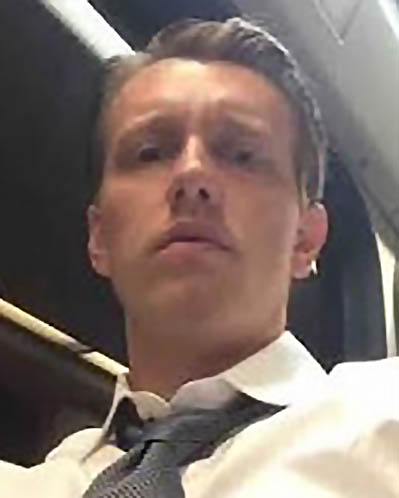
Anton Sorkin is a research assistant for the Center for the Study of Law and Religion at Emory University. He has an LLM in Law and Religion from Emory University School of Law, a JD from Regent University School of Law with a concentration in religious liberty, and a BS in civil engineering from the University of Texas at San Antonio. Anton has been an intern for The Stinemetz Law Firm in Houston, Texas, for the National Right to Work Legal Defense Foundation, for the Family Research Council's Center for Religious Liberty, and was an extern for Alliance Defending Freedom International. He is currently a law clerk for the American Center for Law and Justice. His interests deal specifically with research and writing on Law and Religion, International Human Rights, Public Policy, and Family Law. He focuses on jurisprudential approaches to the law with an emphasis on legal history. His goals are to help organizations restore the proper balance of religious freedom, help raise awareness of various human rights violations, and advocate for public policy changes.
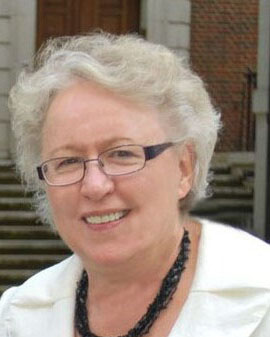
Donlu Thayer, BA, MA, JD, is Senior Editor at the International Center for Law and Religion Studies at the Brigham Young University Law School, with responsibility for overseeing print and electronic publications, including the International Law and Religion Headlines project and the case table of the Strasbourg Consortium. Before joining the Center in 2009 Donlu had a long career as a writer, editor, and University Lecturer in writing. She is a certified high-conflict mediator and a member of the Utah State Bar. Recent publications include the Brill Encyclopedia of Law and Religion (2016, associate editor with Cole Durham and Gerhard Robbers); Religion and the Secular State (2015, edited with Javier Martínez-Torrón and Cole Durham, General Reporters); Law, Religion, and Constitution (2013, edited with Cole Durham, Silvio Ferrari, and Cristiana Cianitto), and two volumes in the new Routledge ICLARS Series on Law on Law and Religion — Religion and Equality: Law in Conflict (2016) and Religion, Pluralism, and Reconciling Difference (forthcoming 2016), both edited with Cole Durham. She is an Associate Editor of the Oxford Journal of Law and Religion.
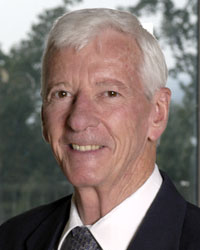
Johan van der Vyver is I.T. Cohen Professor of International Law and Human Rights, Emory University, and Extraordinary Professor in the Department of Private Law of the University of Pretoria, South Africa. Formerly, he was Professor of Law at the University of the Witwatersrand, Johannesburg, and the Potchefstroom University for Christian Higher Education in South Africa. He served as the Human Rights Fellow of The Carter Center from 1995-1998. Current teaching obligations include Public International Law, International Human Rights, International Criminal Law, International Humanitarian Law, Comparative Bills of Rights, and Implementation of International Law in the United States. He holds the degrees of Bachelor of Commerce, Bachelor of Laws, Honours Bachelor of Arts in Philosophy (Potchefstroom University); Doctor of Laws (University of Pretoria); and the Diploma of the International and Comparative Law of Human Rights (International Institute of Human Rights, Strasbourg). He was awarded honorary Doctor of Laws degrees by the University of Zululand in 1993 and Potchefstroom University in 2003. The author of eleven books and monographs and close to 300 chapters in books, law review and other articles, and book reviews, his research interests include human rights, and international criminal law among others.
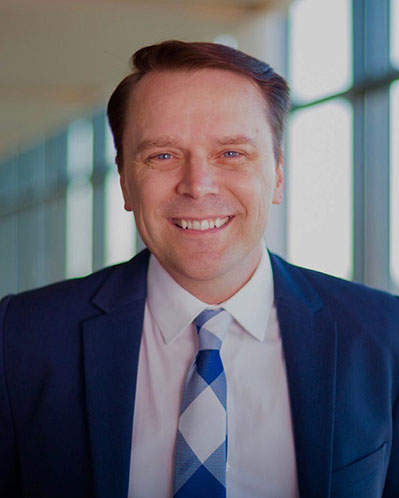
Nathan C. Walker (MDiv, EdM, MA) is executive director of the Religious Freedom Center of the Newseum Institute in Washington, DC. He is the co-author of Promoting and Protecting the Universal Right to Freedom of Religion or Belief through Law (International Development Law Organization 2014); coeditor of Whose God Rules? (Palgrave Macmillan 2011); and editor of The Oxford Handbook on Religion and American Education (forthcoming 2017). He is an advanced doctoral candidate in law, education, and religion at Columbia University and previously studied law and religion while serving as a Resident Fellow at Harvard University.
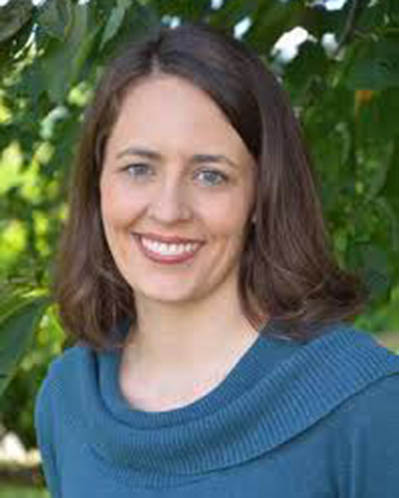
Ashley Woolley is a writer and independent editor who provides academic editing and publication management services for major law schools in the United States. Her clients have included Stanford Law School and the J. Reuben Clark Law School at Brigham Young University, for whom she worked most recently as content and format editor for the international Encyclopedia of Law and Religion, a project undertaken by the Law School's International Center for Law and Religion Studies in cooperation with Brill Publishers of the Netherlands. Ashley holds a bachelor's degree, summa cum laude, in Romance Languages and Literatures from Harvard. She received a Master of Theological Studies from Harvard Divinity School and a Juris Doctor from Stanford Law School.

Peter J. Wosnik is a JD candidate at Emory University School of Law and a Master’s student at Candler School of Theology. A 2015 recipient of the Savage-Lebey Scholarship in Law and Religion, he has served as the Assistant Managing Editor for Peer Review for the Journal of Law and Religion (Cambridge University Press), President of Emory Law’s Criminal Law Society, and as a research assistant to Professor John Witte, Jr. He received BA degrees cum laude in history and religious studies from Utah State University.
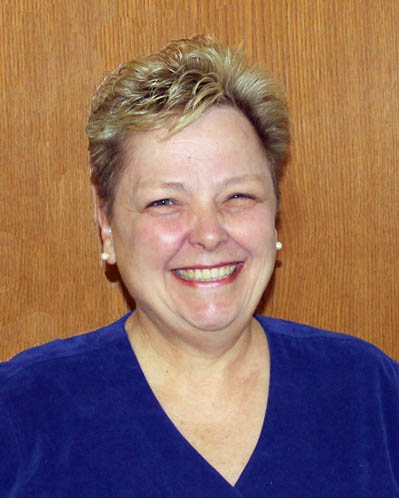
Deborah Wright is the ICLRS Coordinator for this Oxford event. She can be reached at [email protected]. Deborah has been with the International Center for Law and Religion Studies at Brigham Young University Law School since 2001. She supervises the administrative staff and coordinates the activities of all Center personnel. The organization and scheduling of the Center's many conferences, including logistics, travel, accommodations, on campus and all around the world, fall upon her capable shoulders. Most especially, the continued success of the annual International Law and Religion Symposium wouldn't be possible without Deborah’s competence and tireless efforts in the year-round efforts of organization, planning, communication, and coordination of events and facilities, of faculty, students, delegates, hosts, and visitors, all of which combine to bring to pass such a complex undertaking.
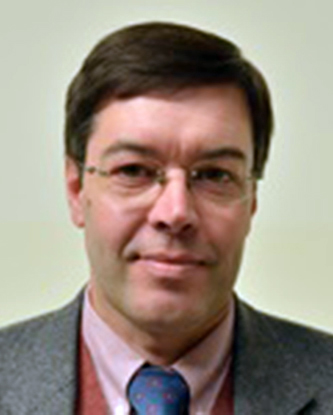
Gabriel Gonzáles Merlano is a priest with a degree in canon law from the Universidad Pontificia de Salamanca and a Doctor in Canon Law from the Pontificia Universidad Católica Argentina, with the thesis: "The narcissistic personality disorder as the cause of marriage annulment, in doctrine and in the jurisprudence of the Roman Rota”. Since 1999 he is dedicated to teaching, and is currently a professor in the area of history and philosophy of law at Catholic University of Uruguay and other private universities. He is Professor of canon law and ecclesiastical law at the Faculty of Theology Msgr. Mariano Soler. since 1992 he is an advocate for the Tribunal Interdiocesano de Primera Instancia de Montevideo. Professor Merlano is Founder of the Institute of Religious Law of the State (IDRE) and a member of the Latin American Consortium for Religious Freedom. He has participated in forums and conferences in Uruguay and abroad (mainly Spain and Argentina) and is also the author of articles in national and international publications, mainly in relation to the canonical subject, freedom of religion, and philosophy and history law.
